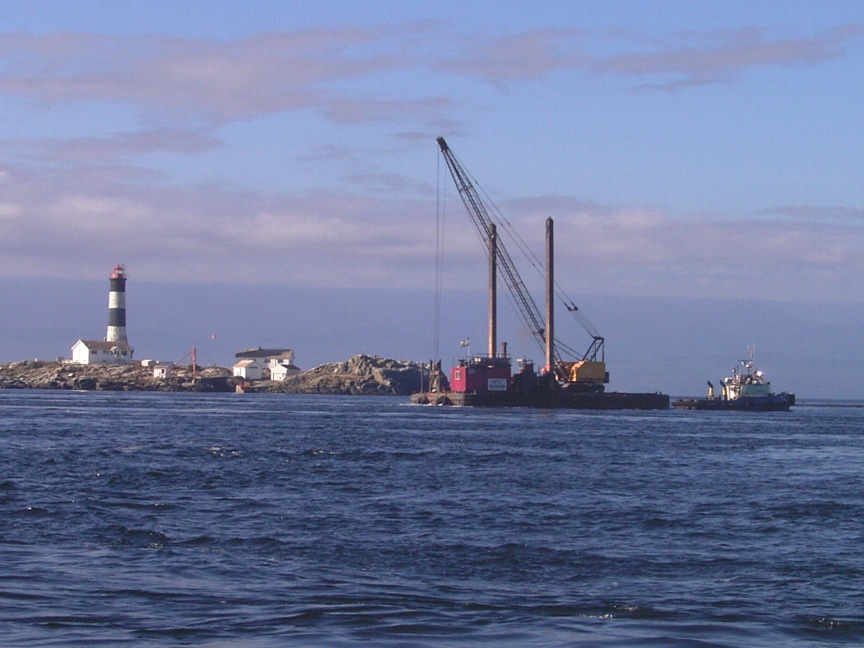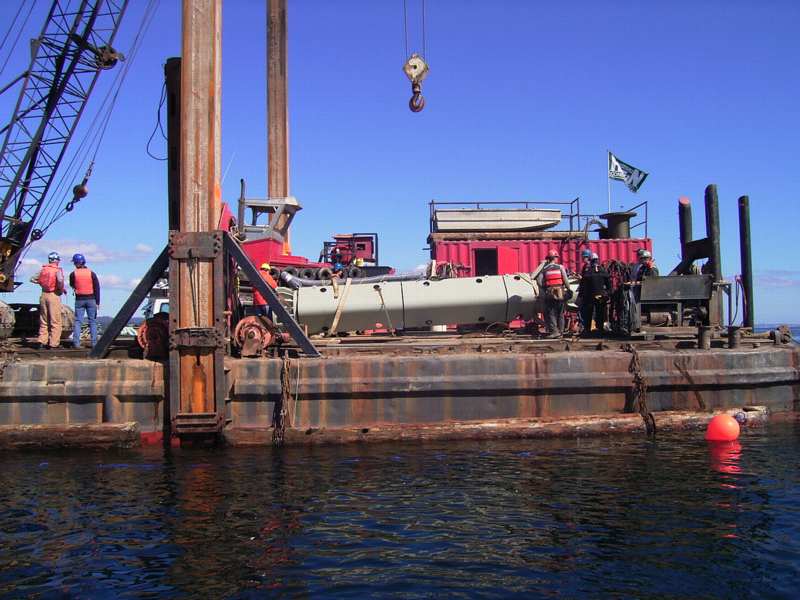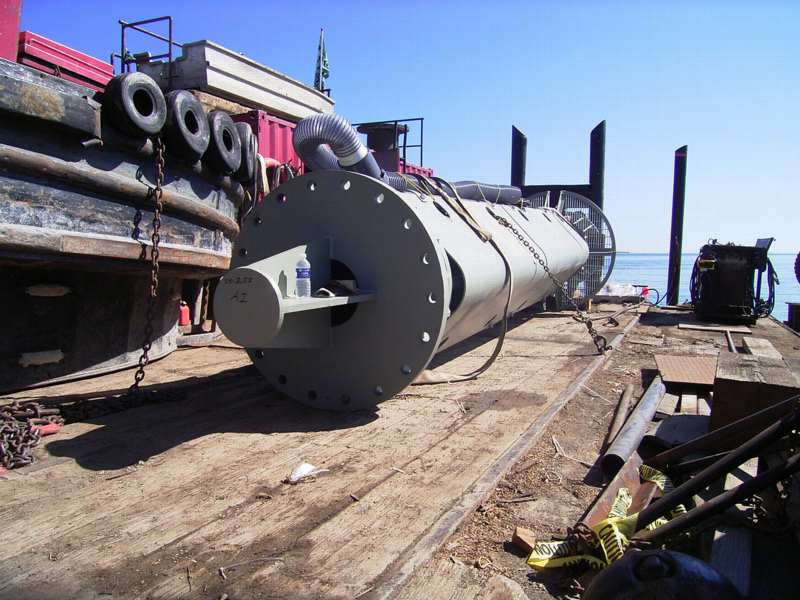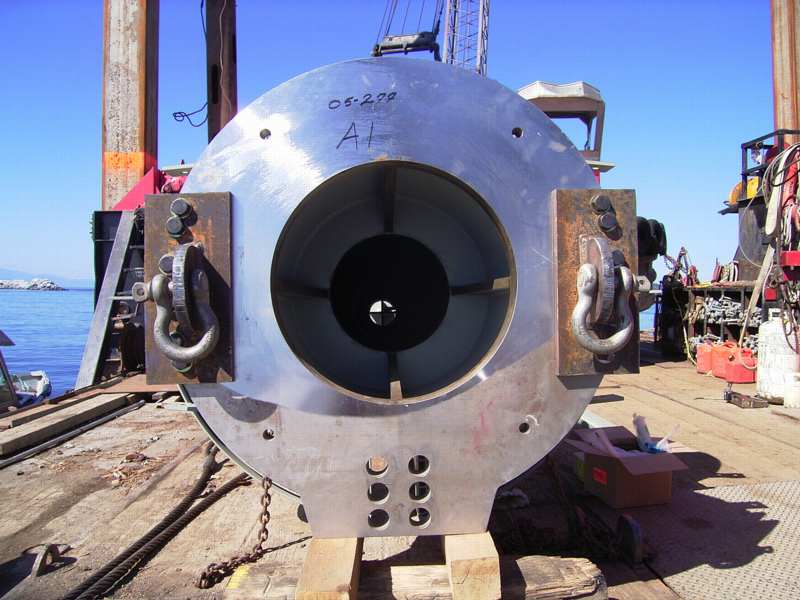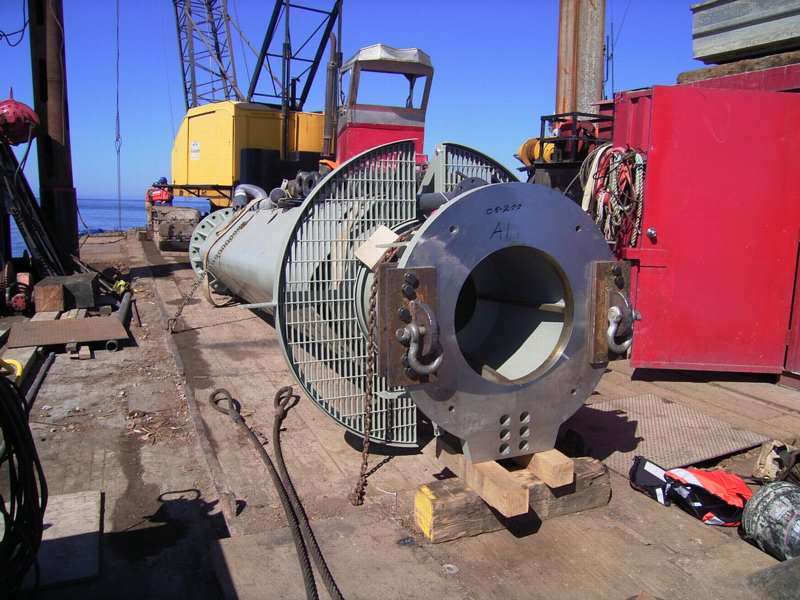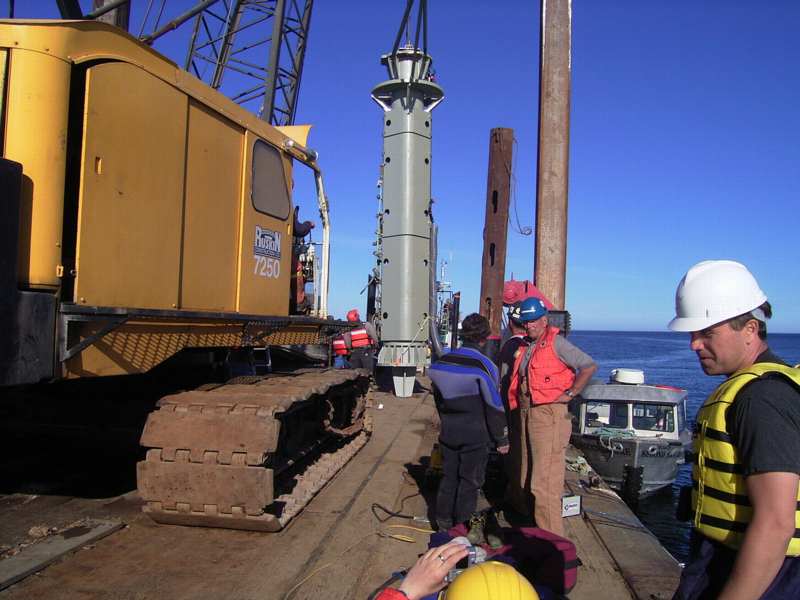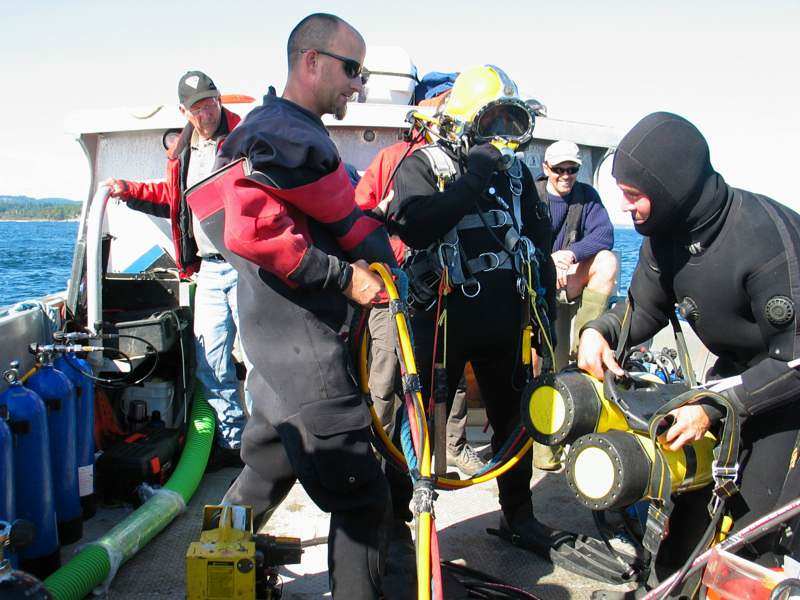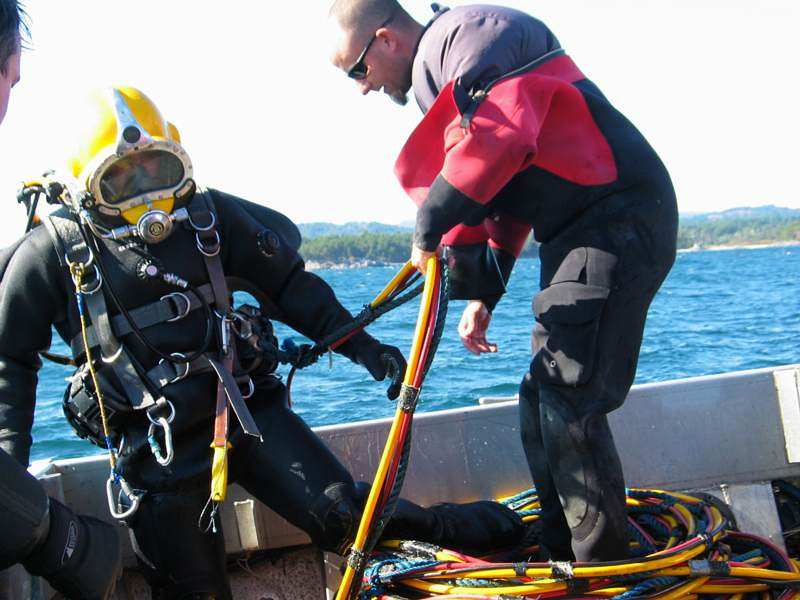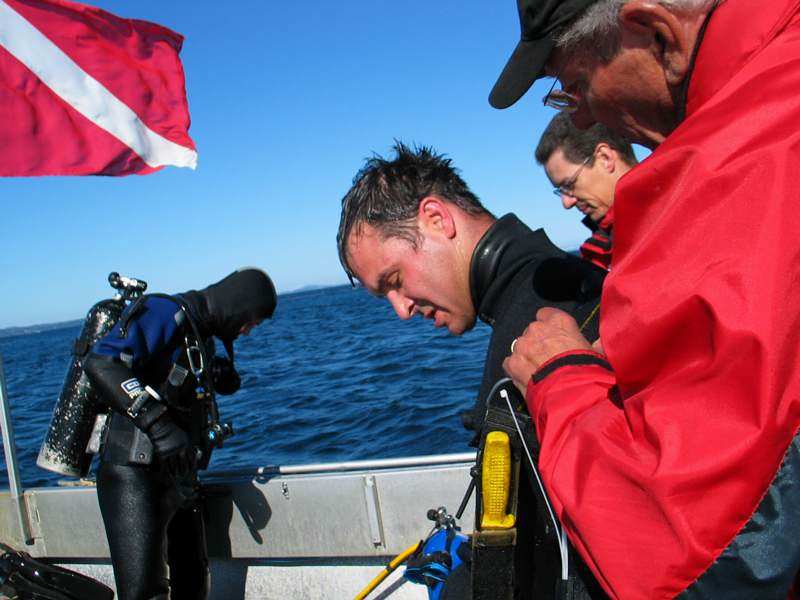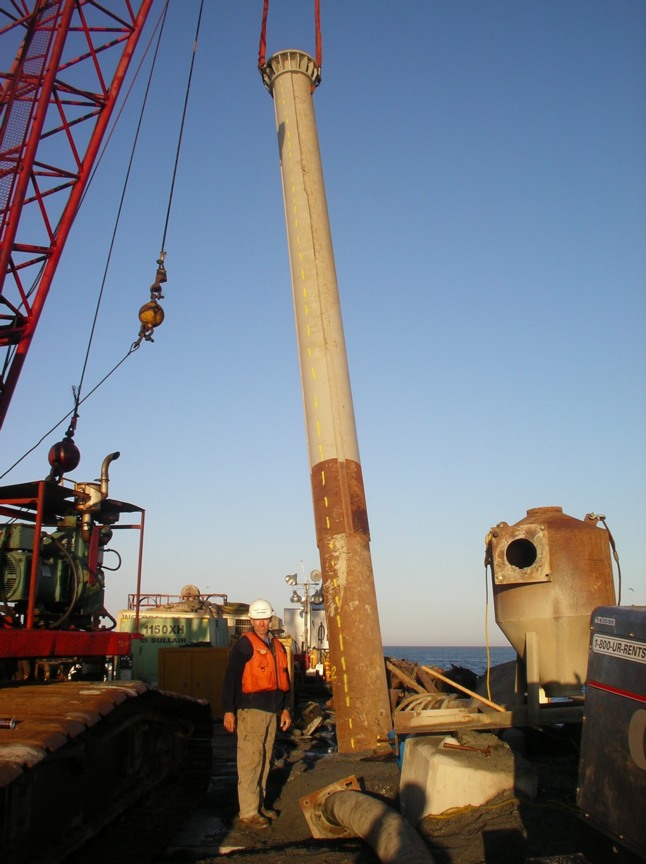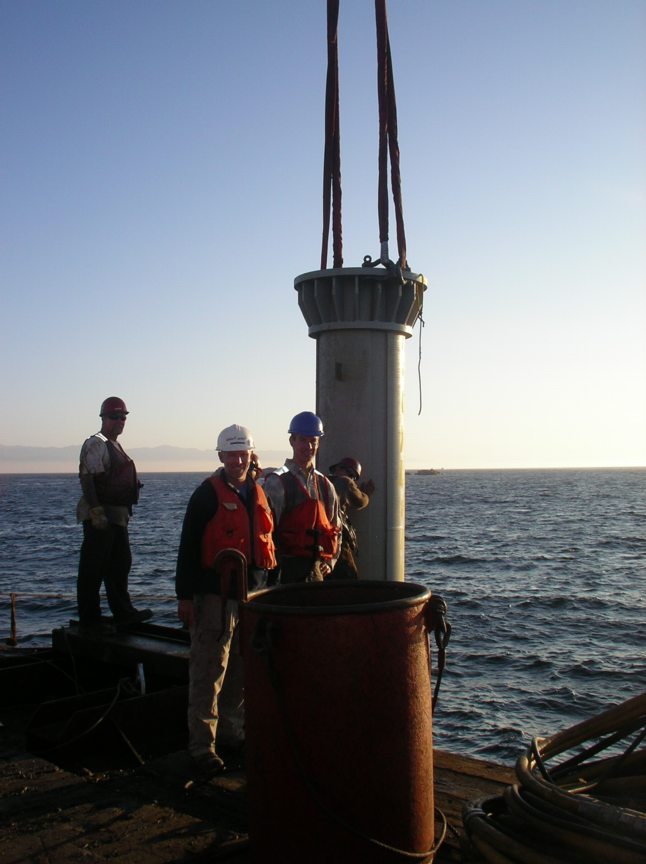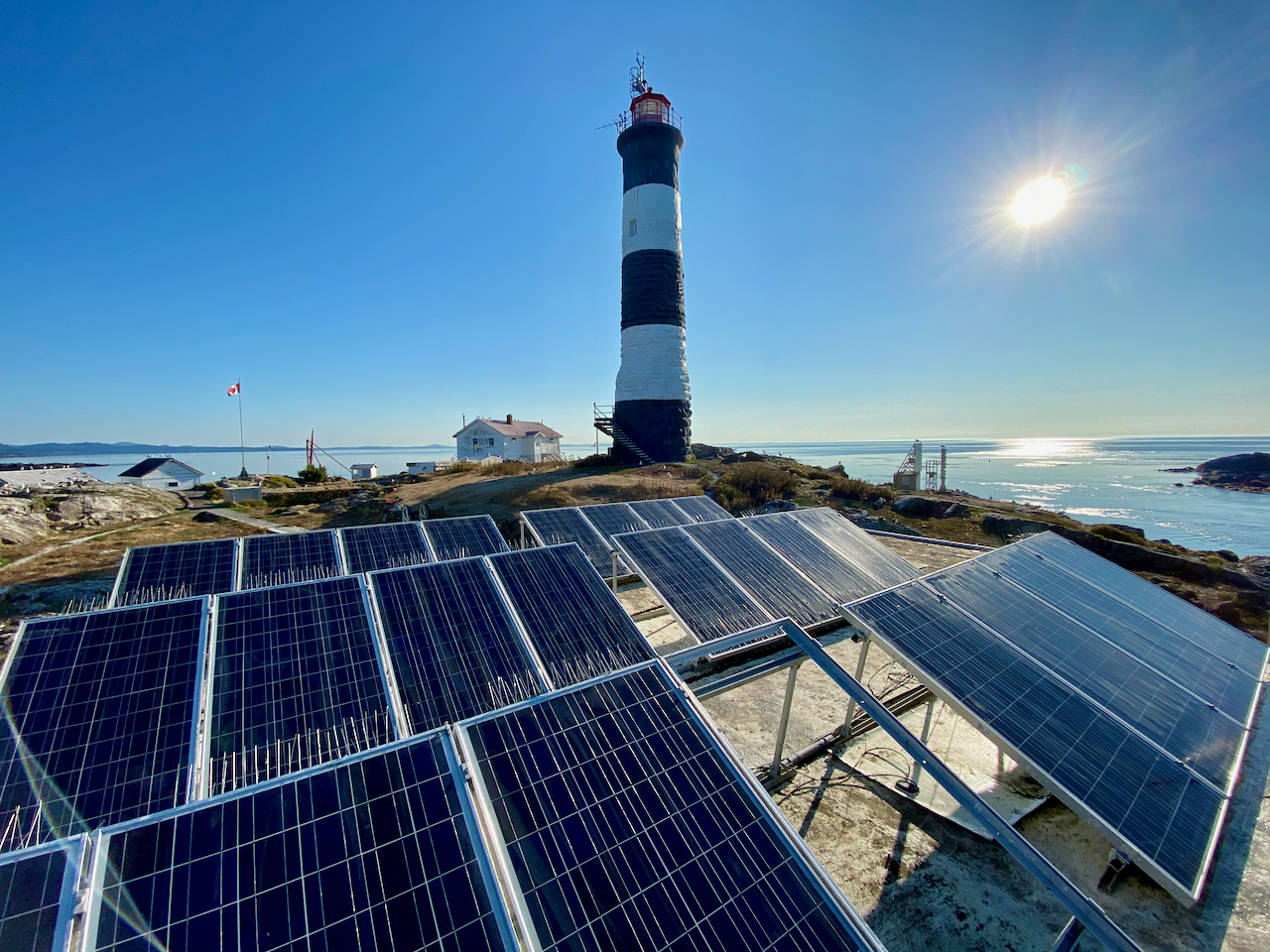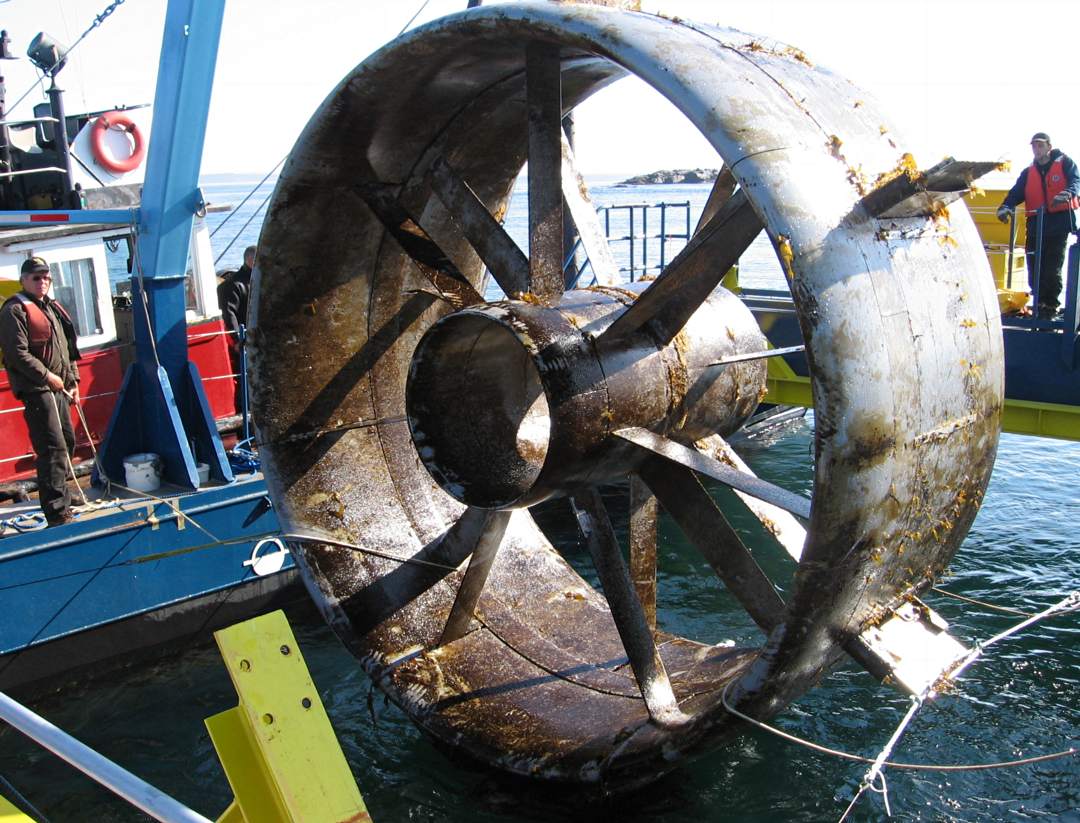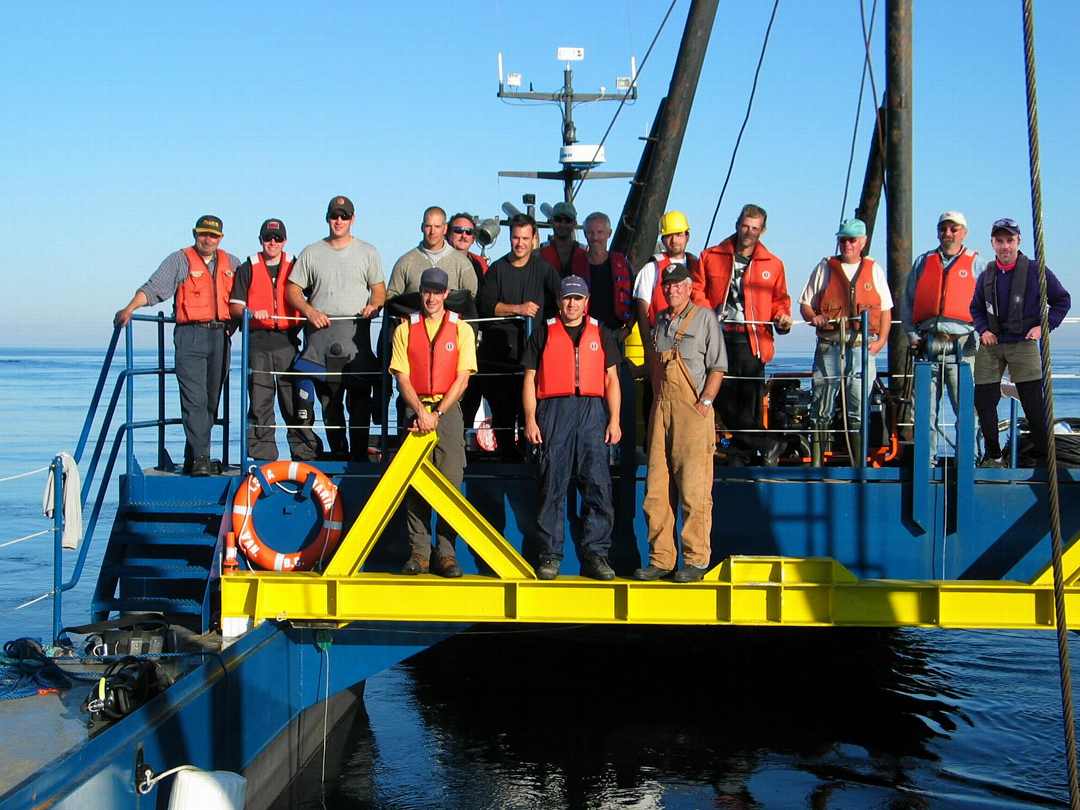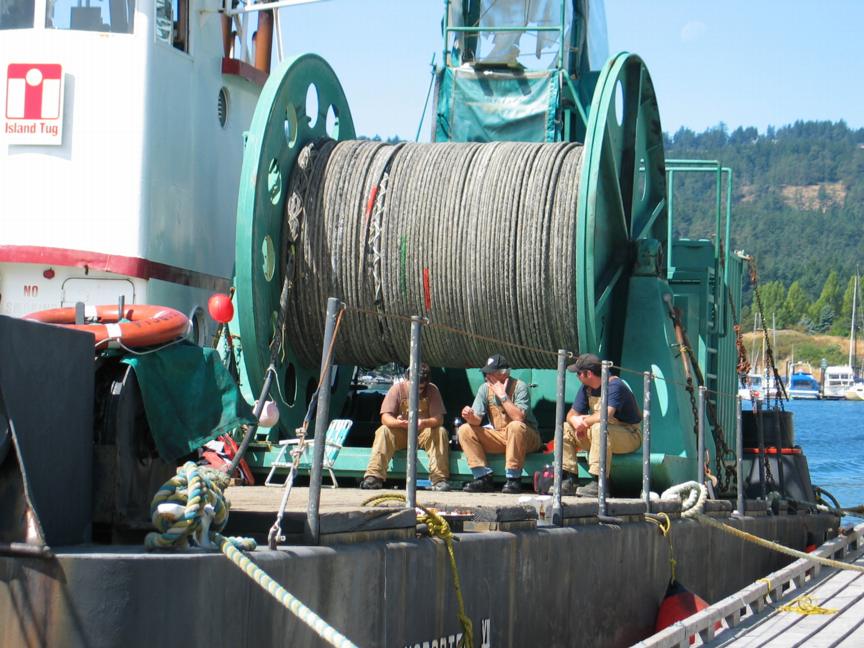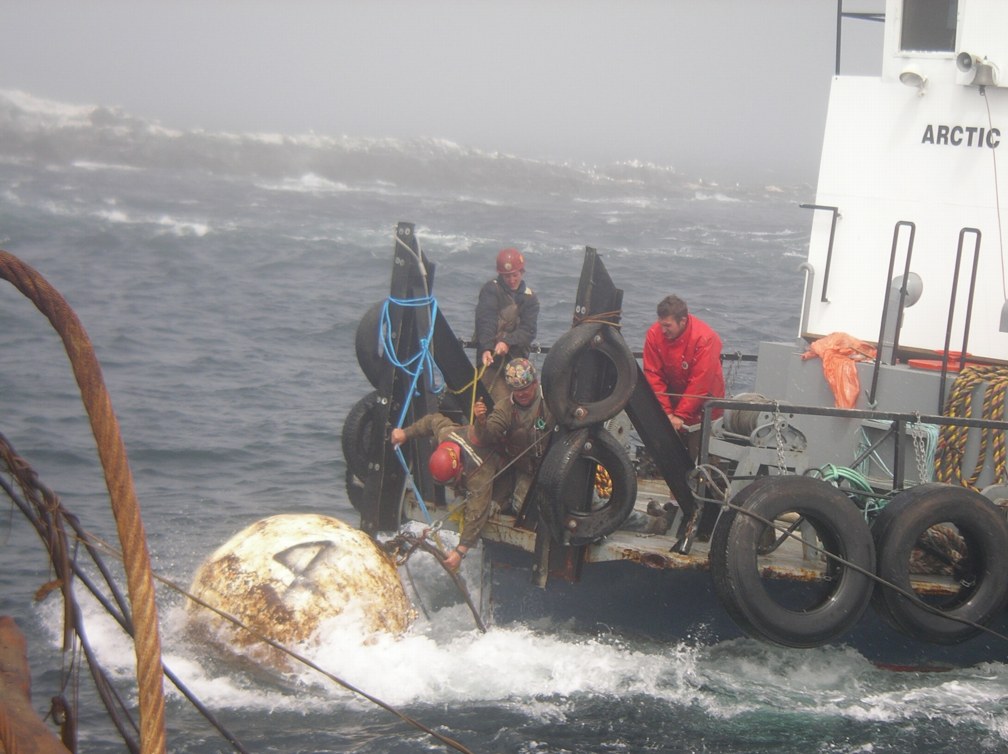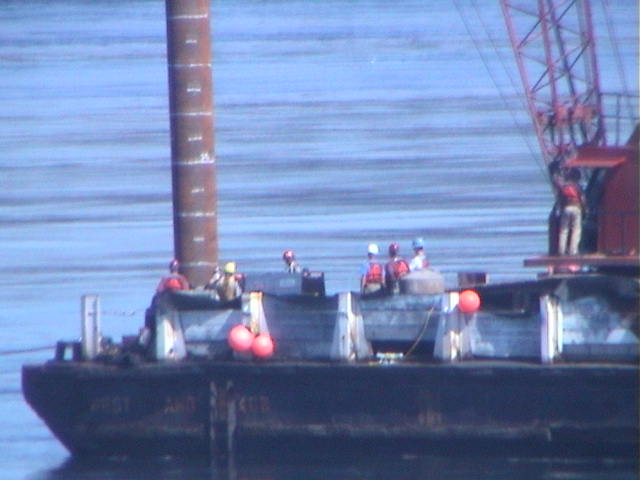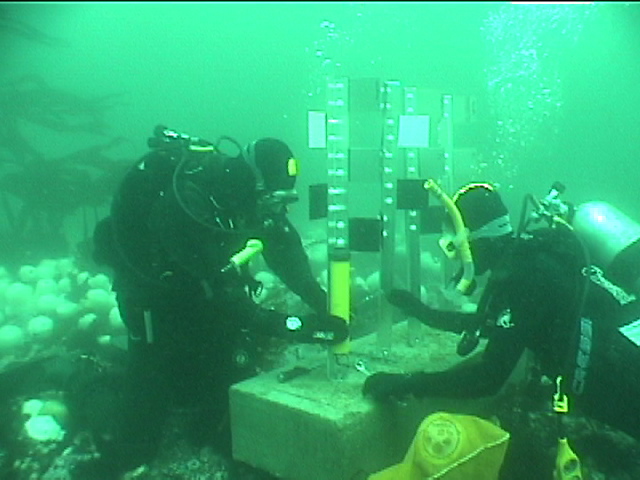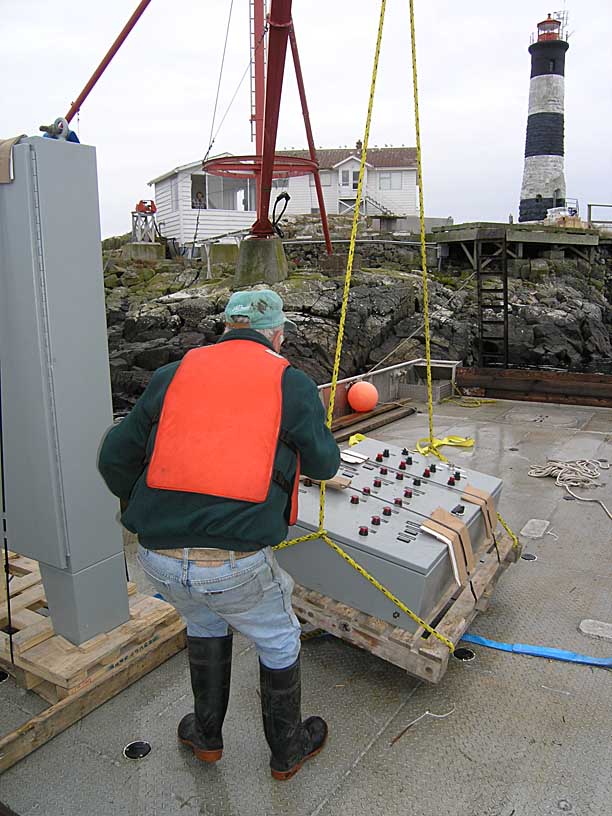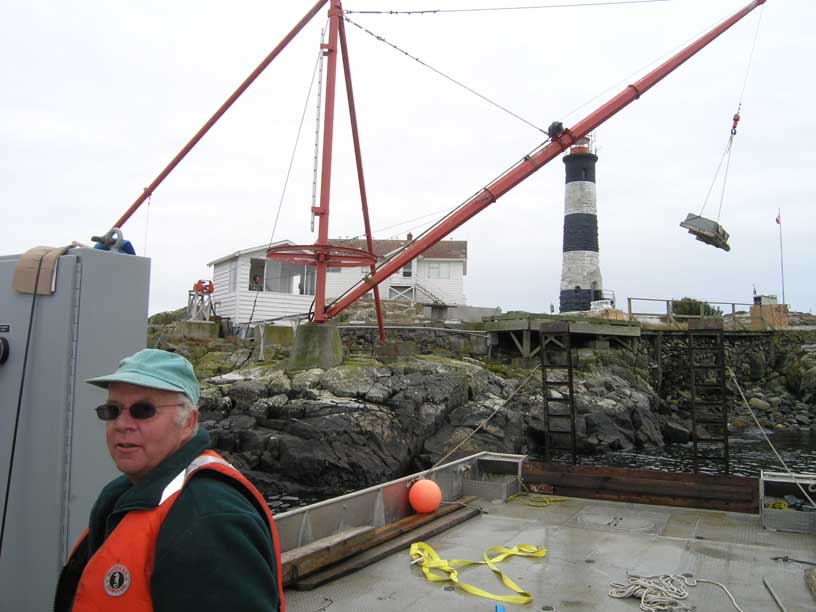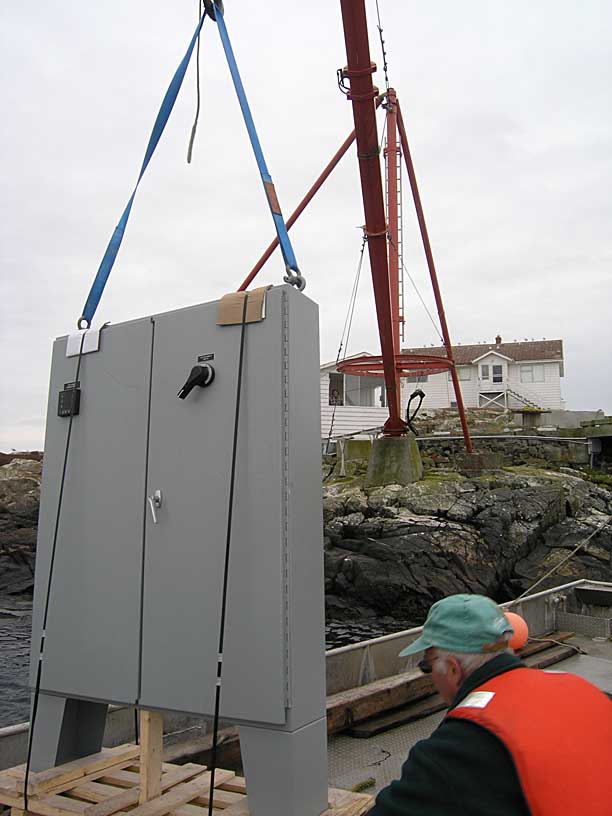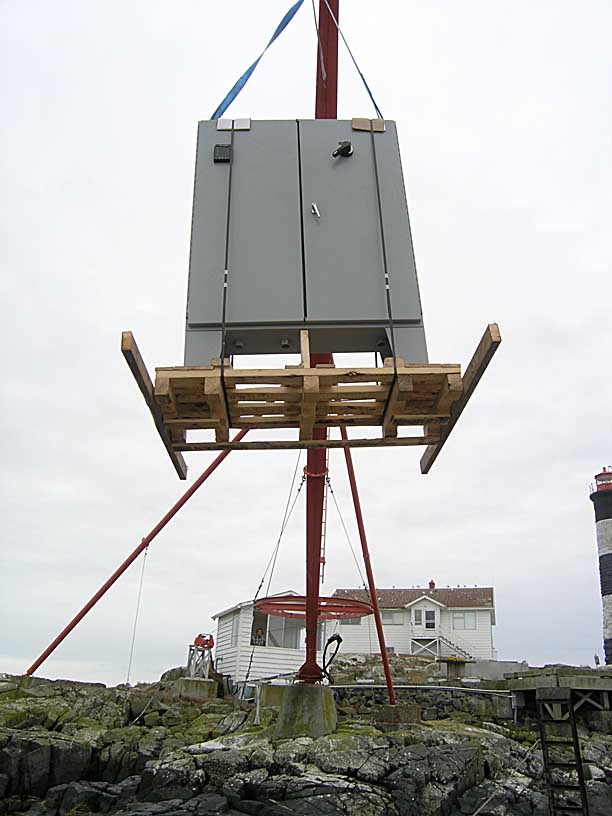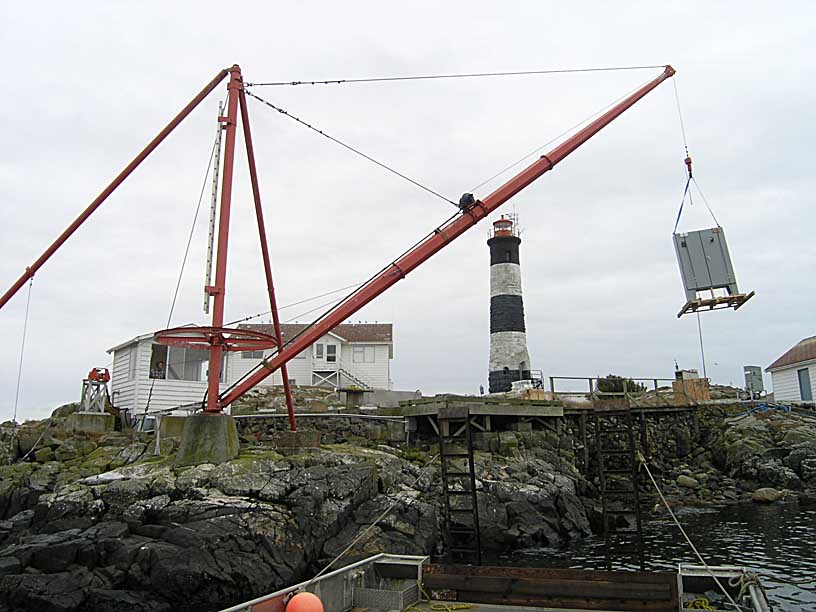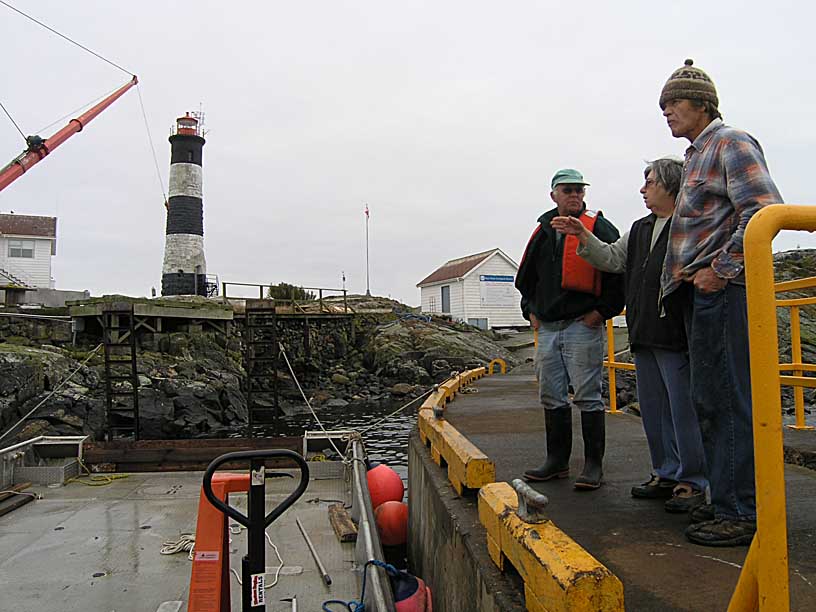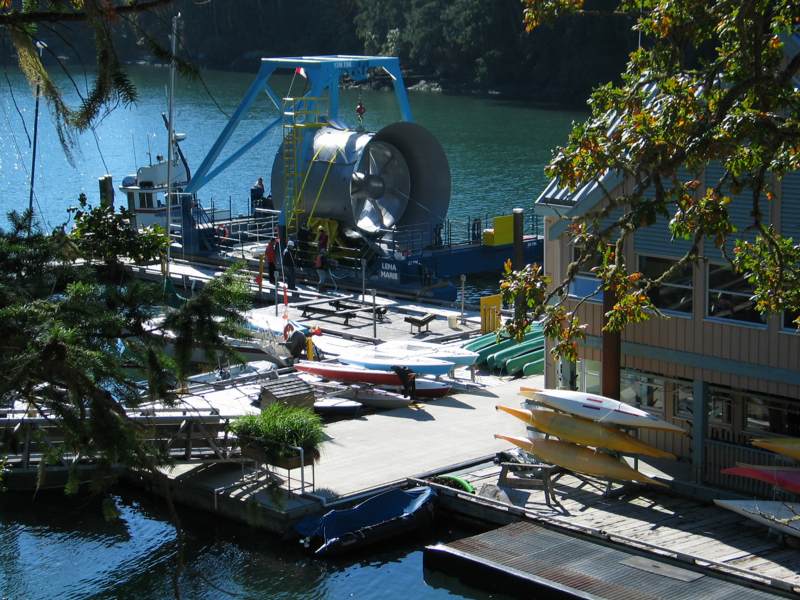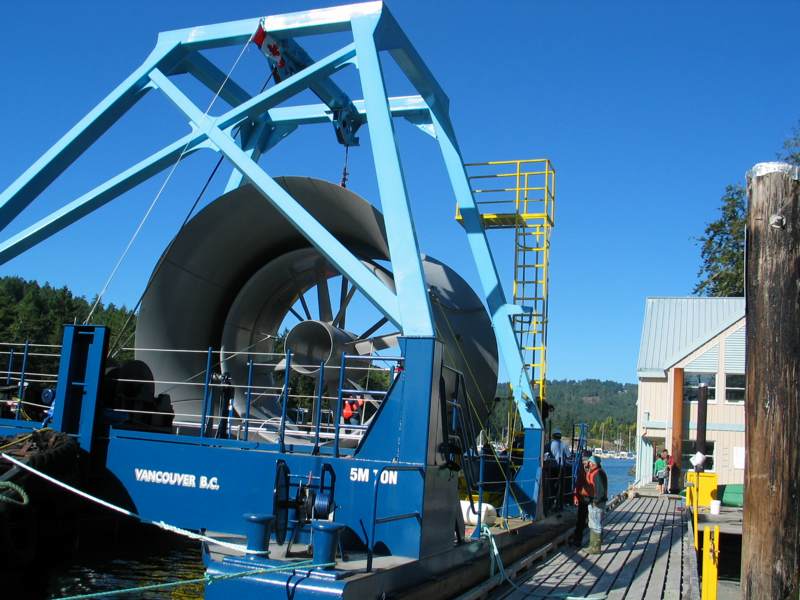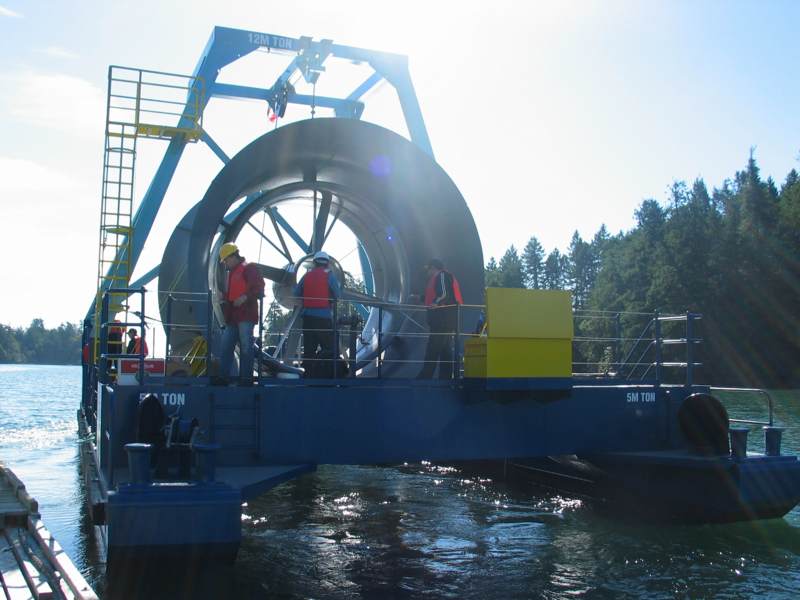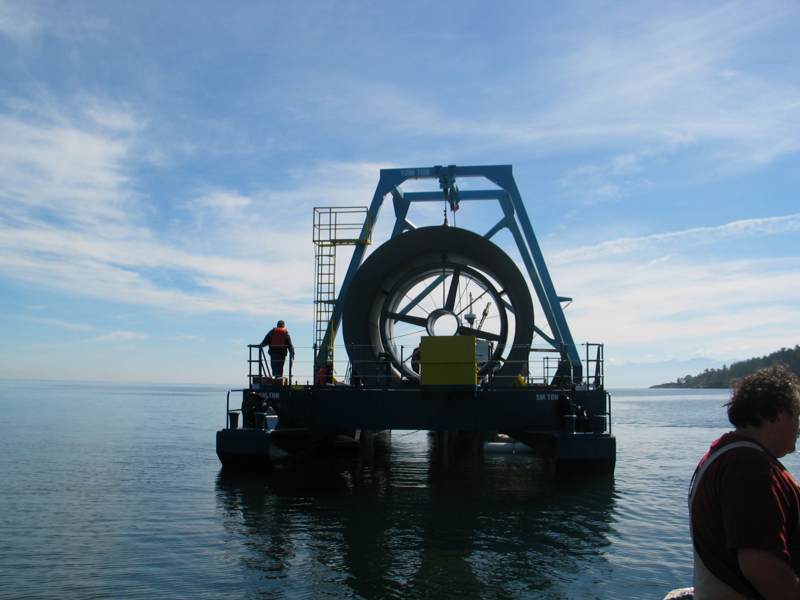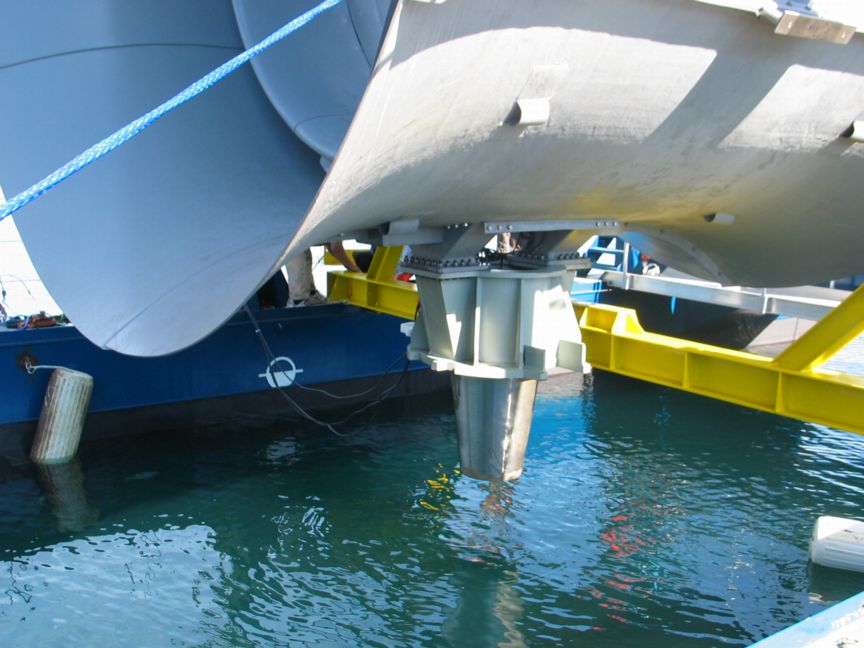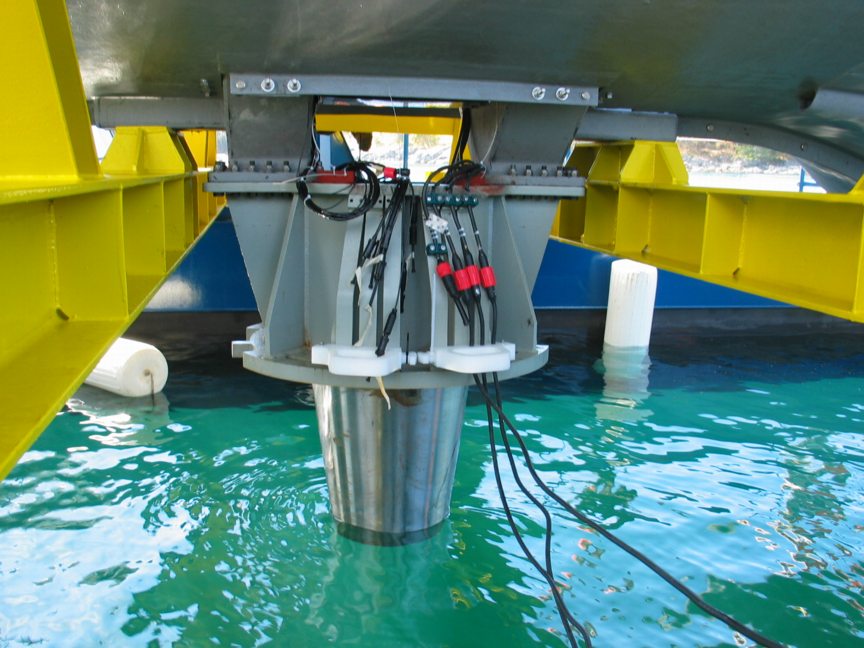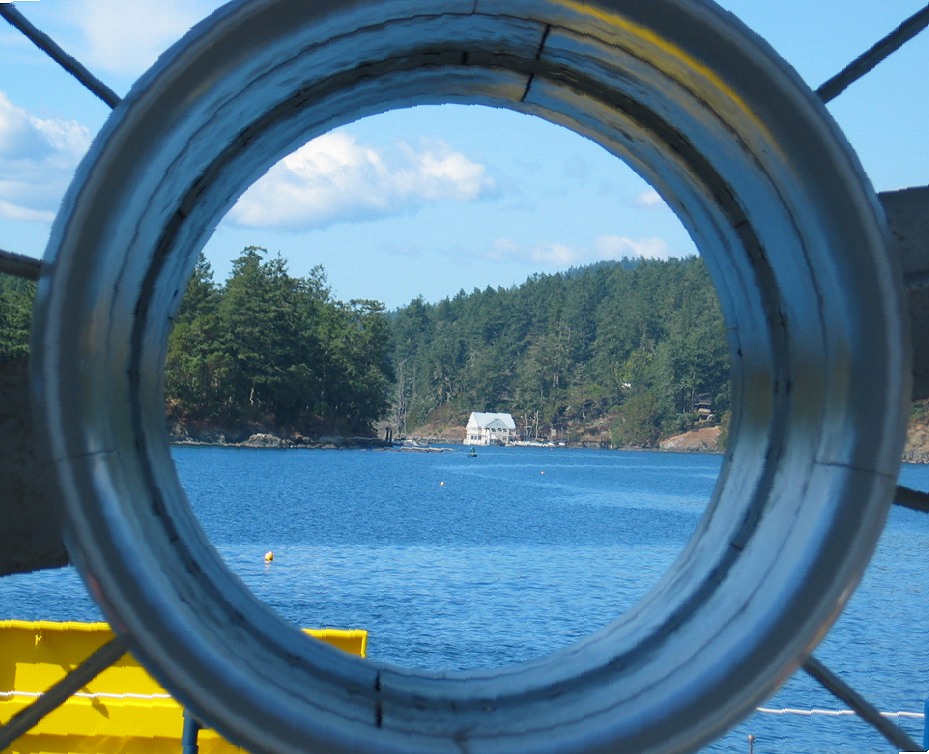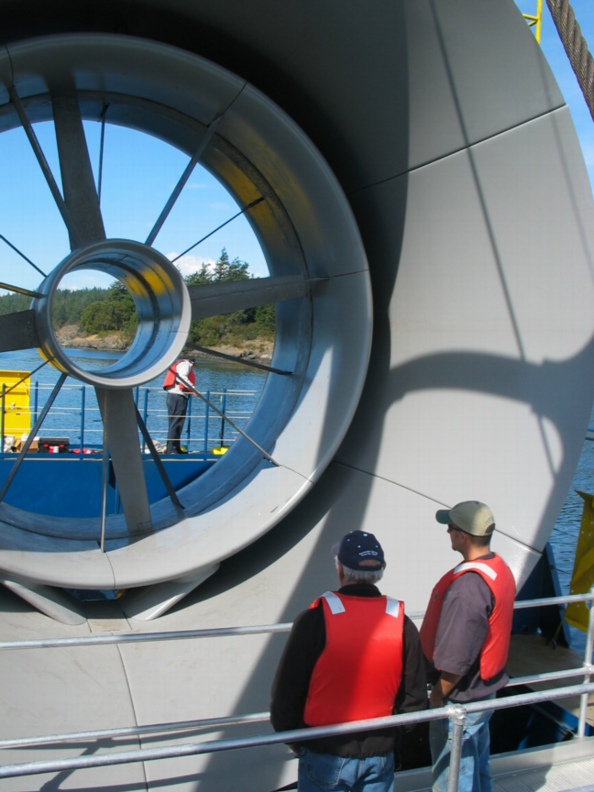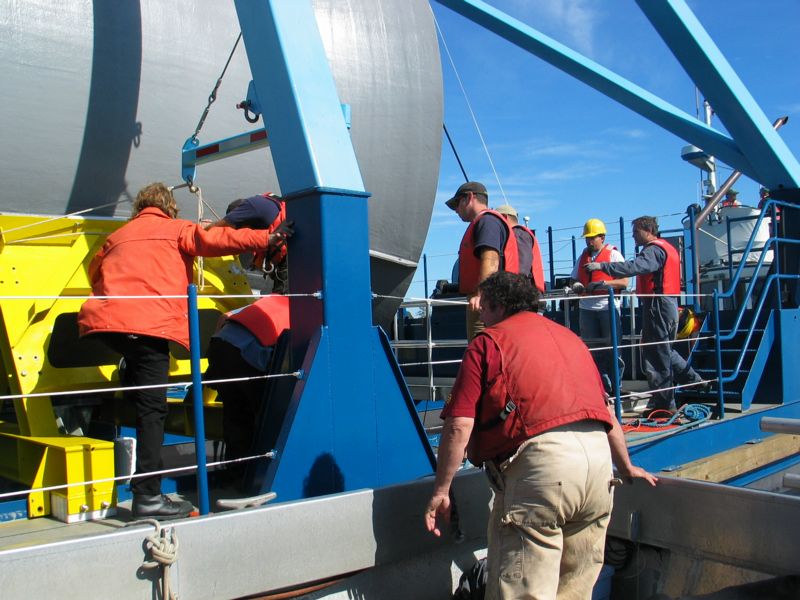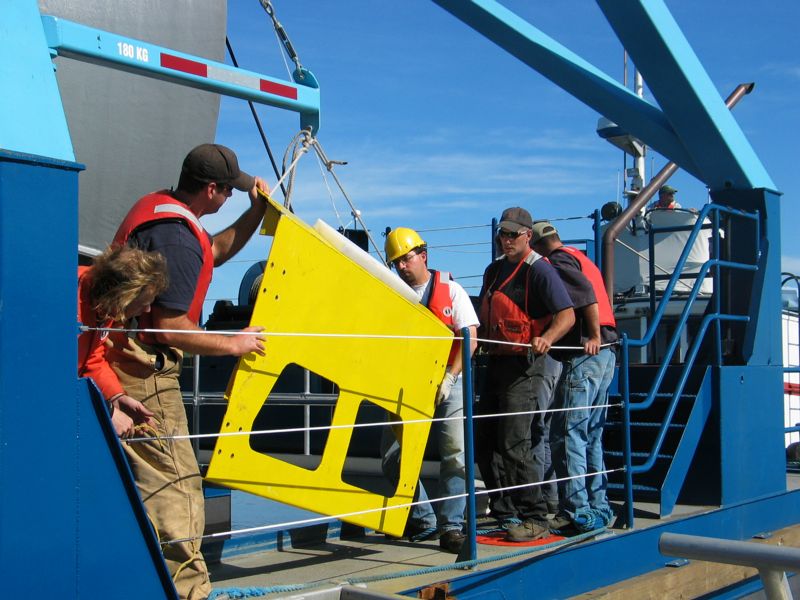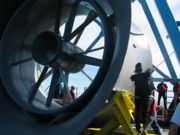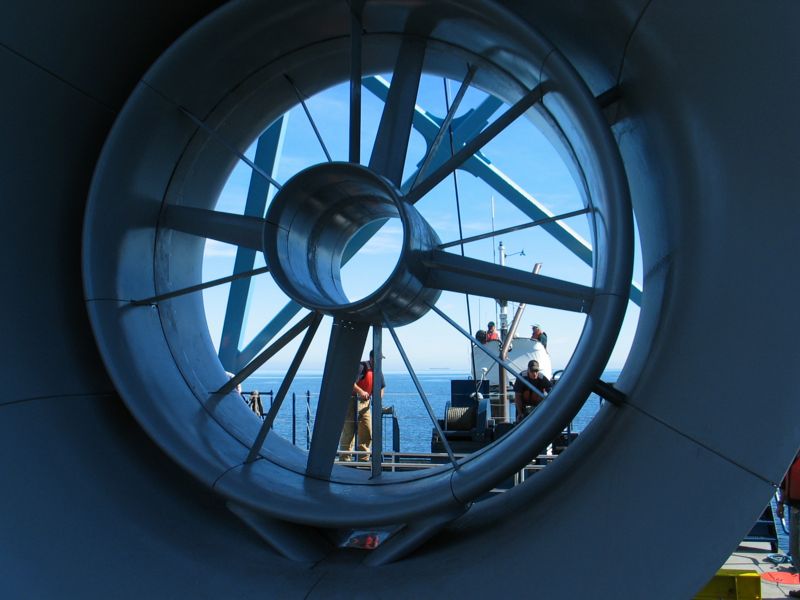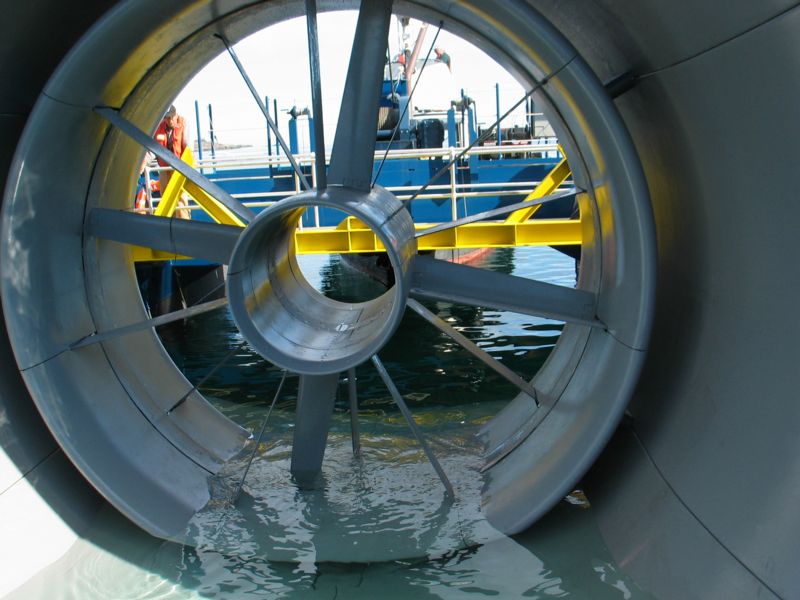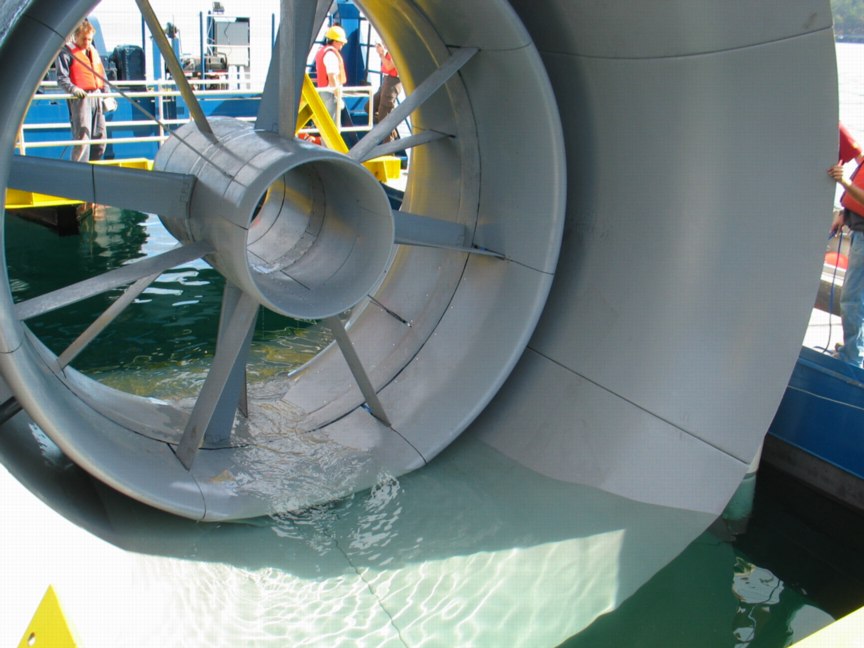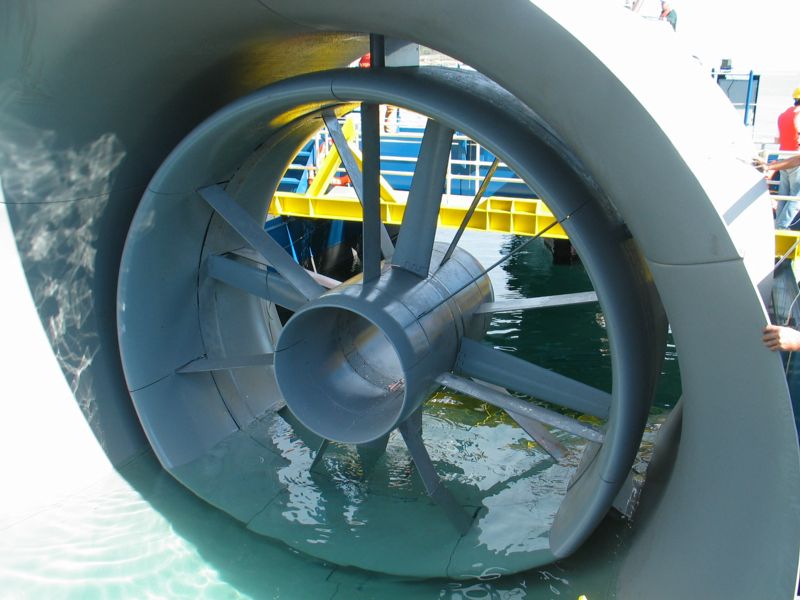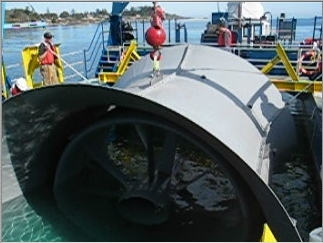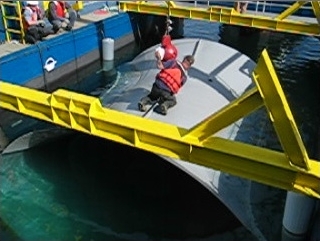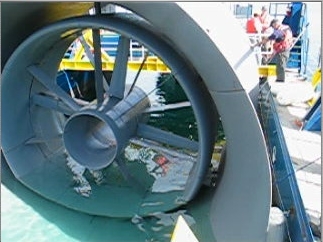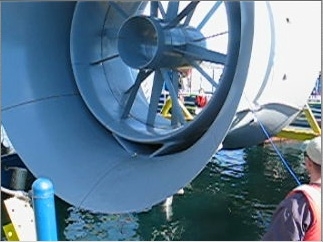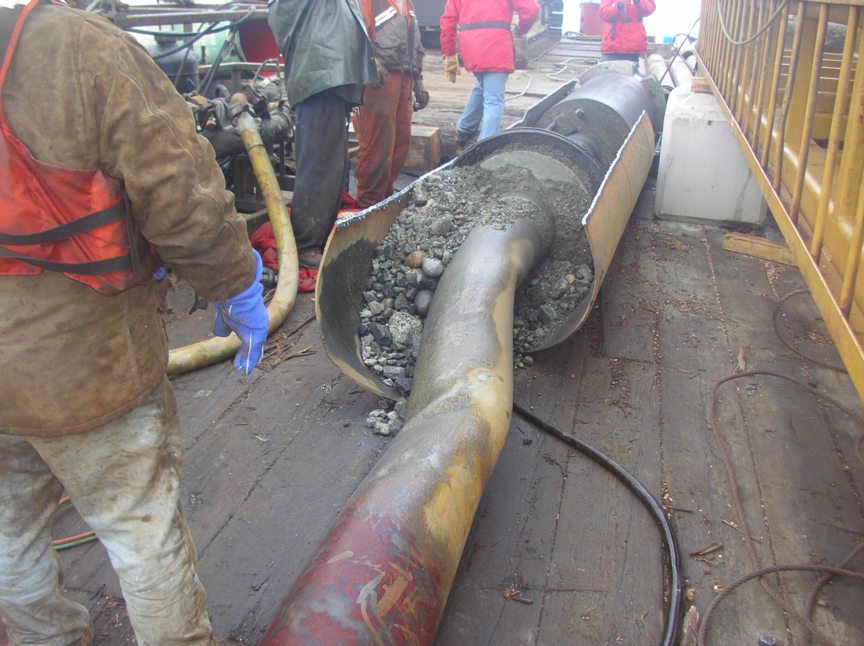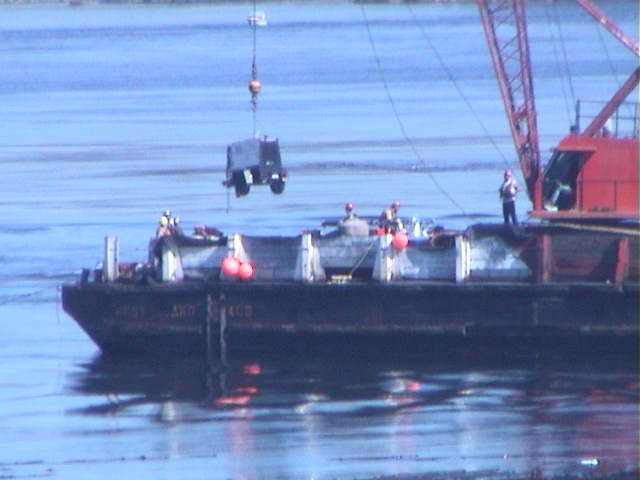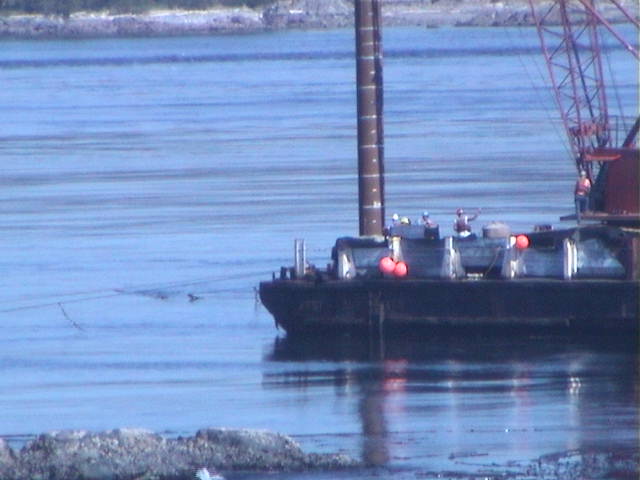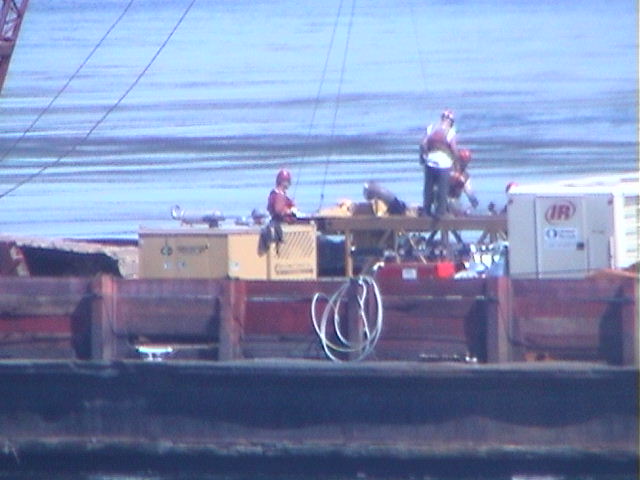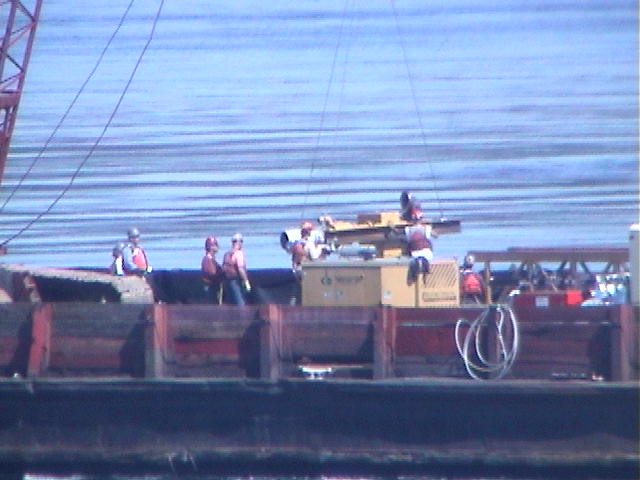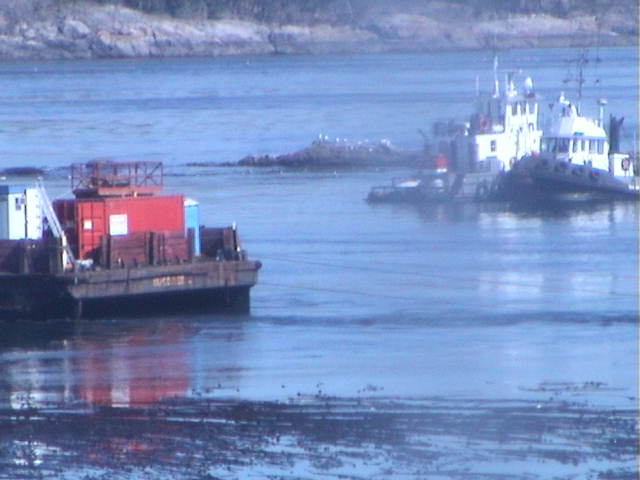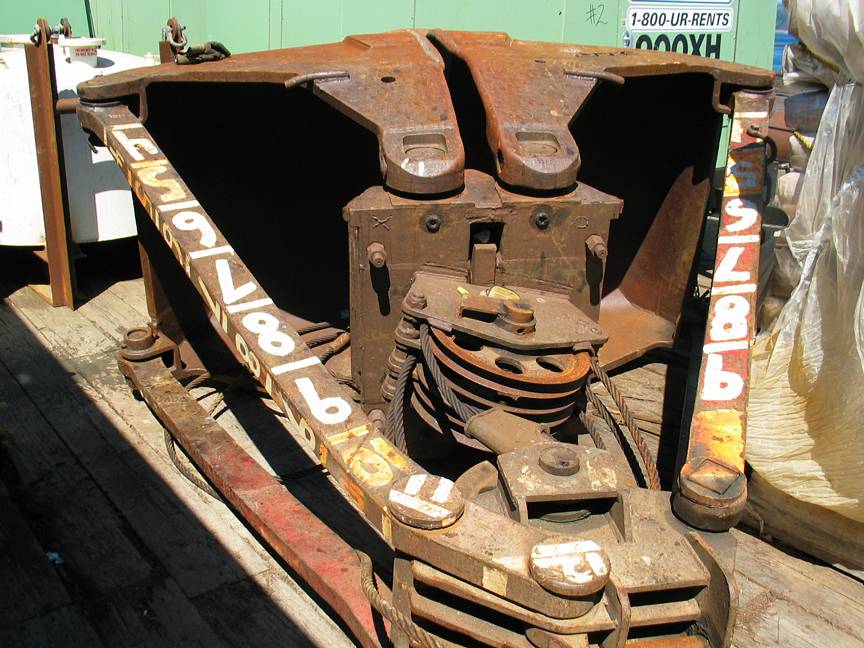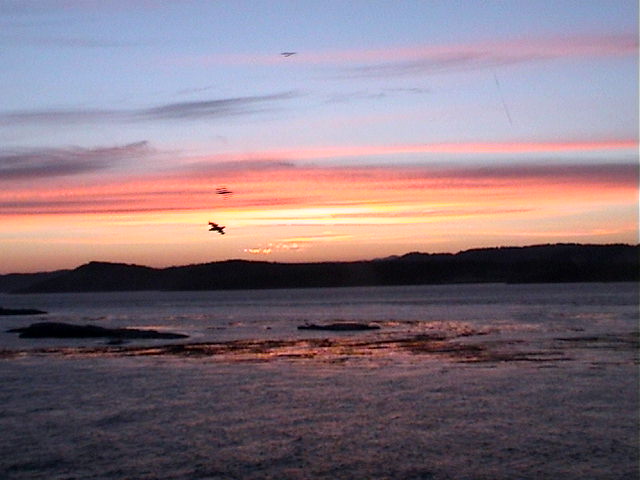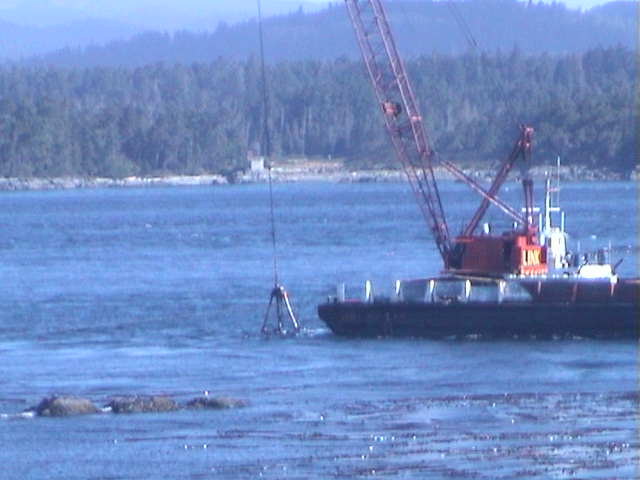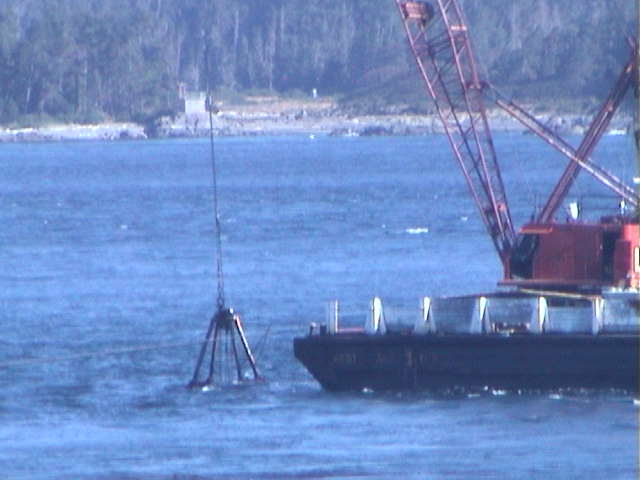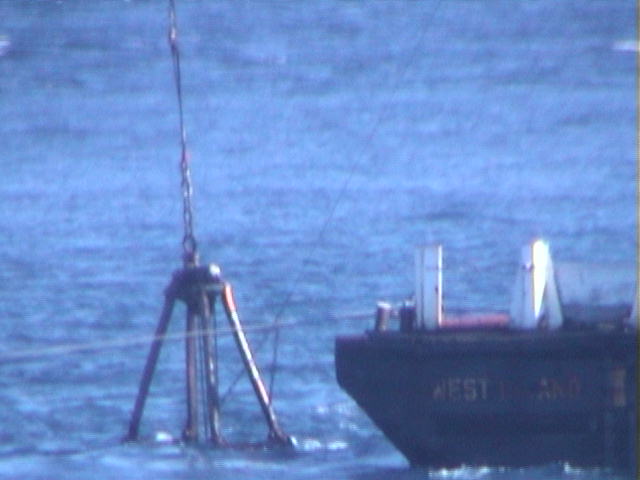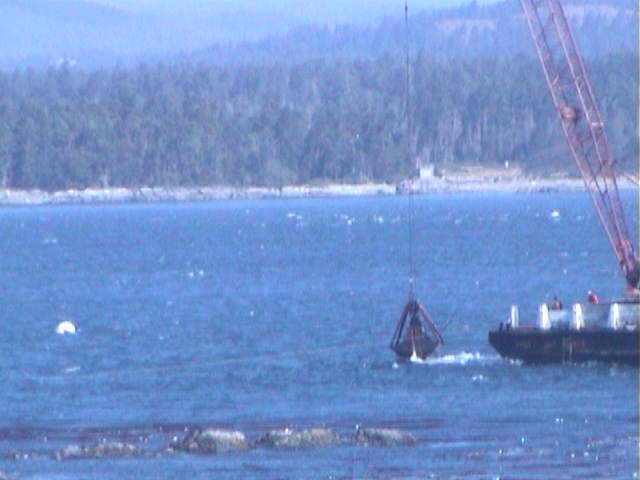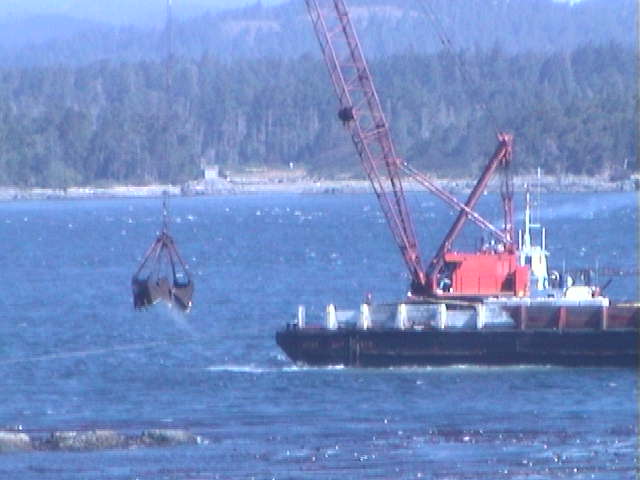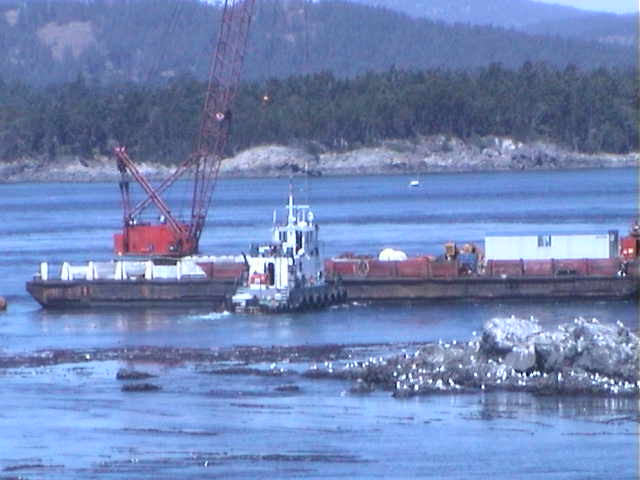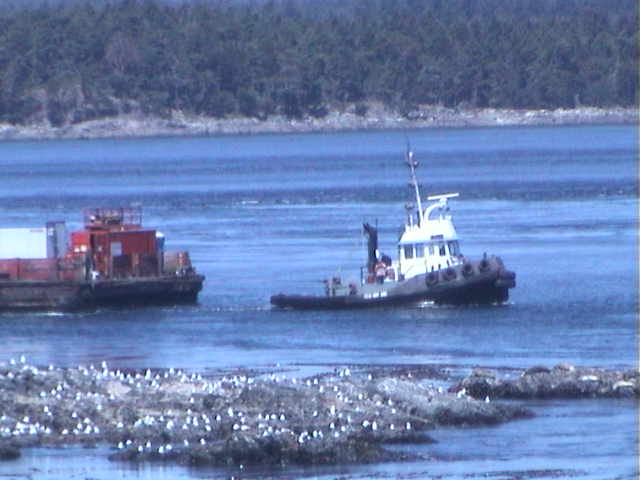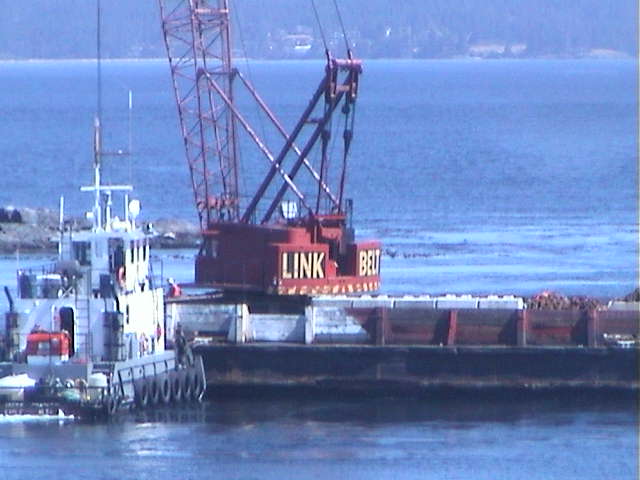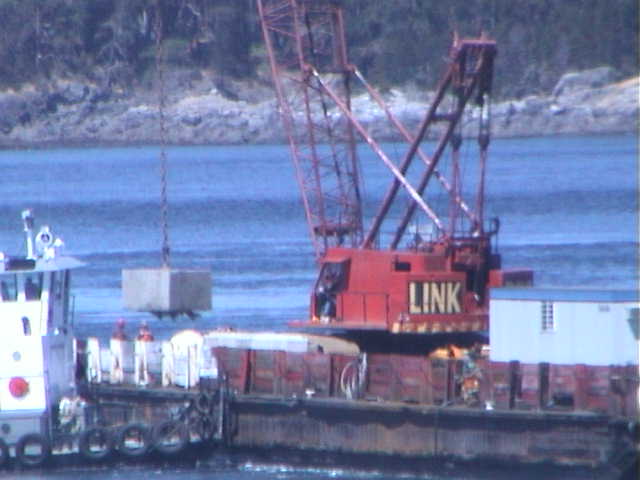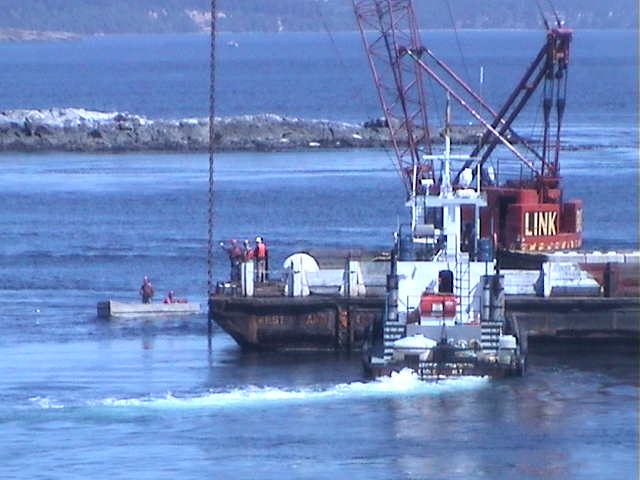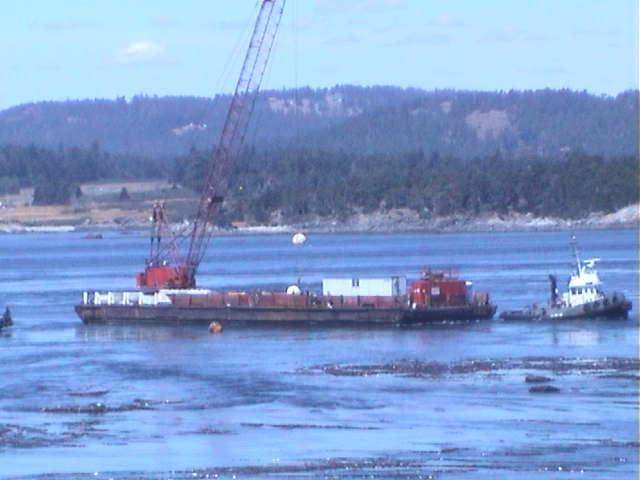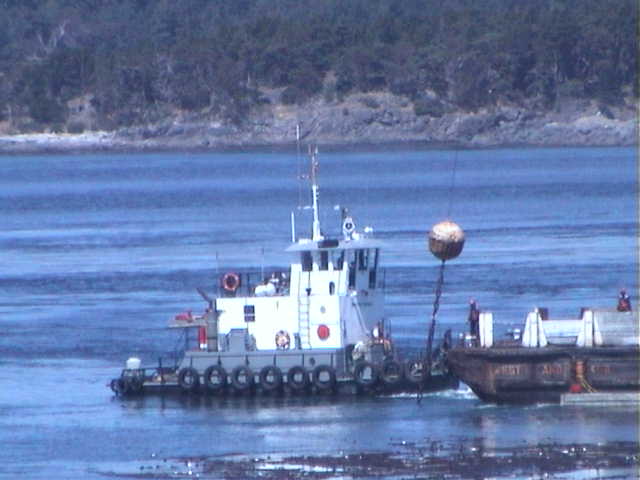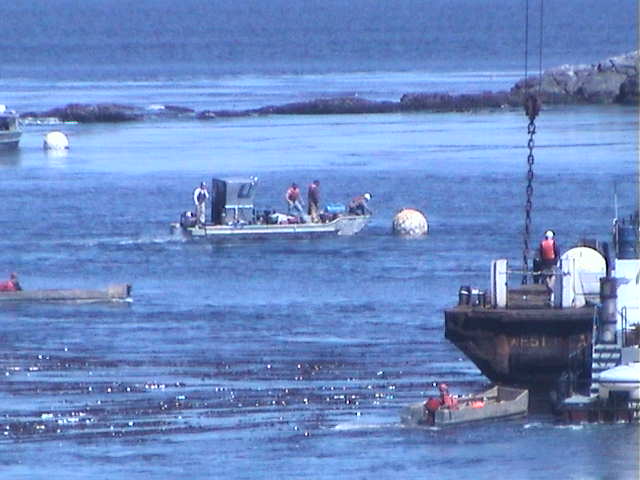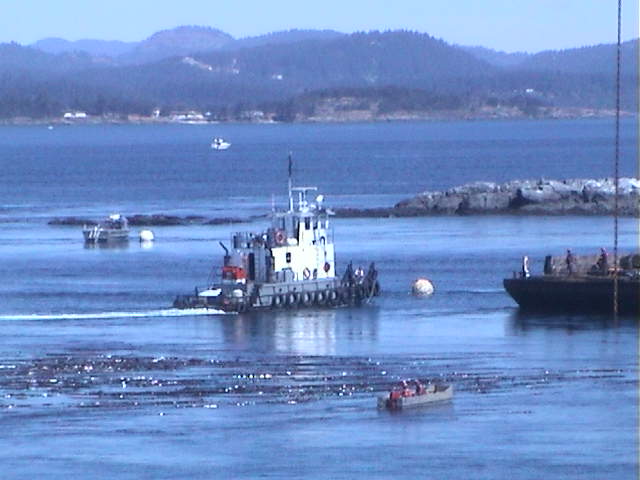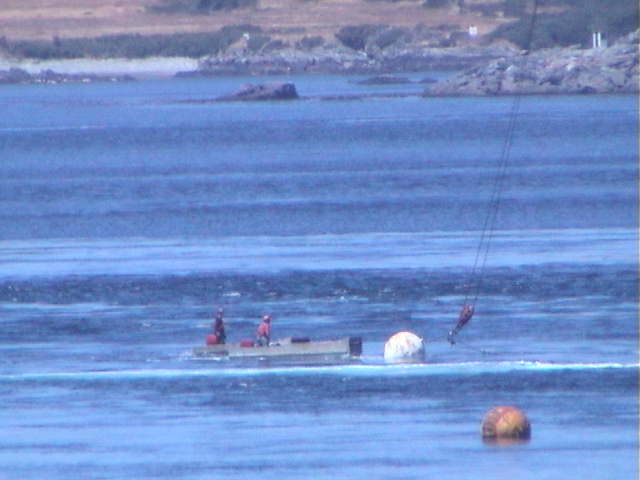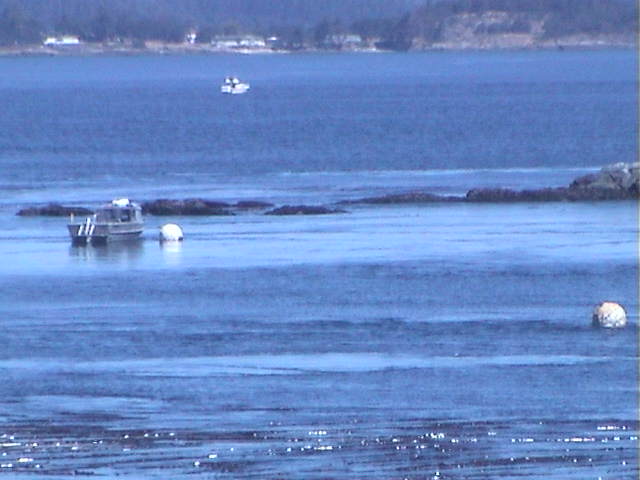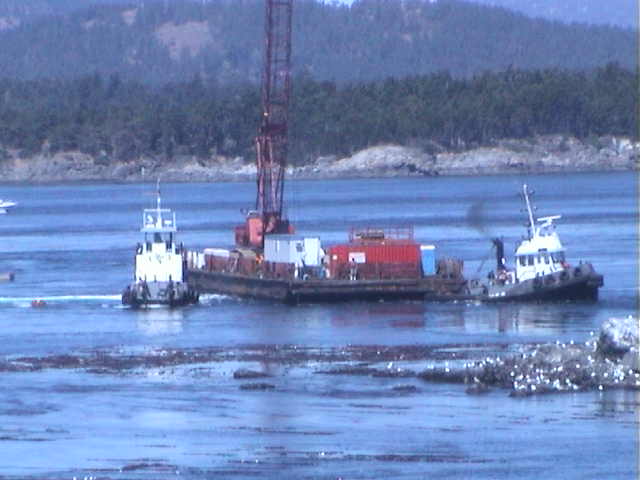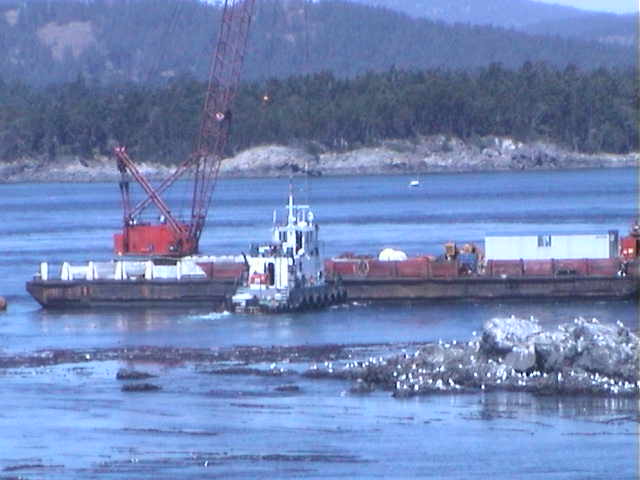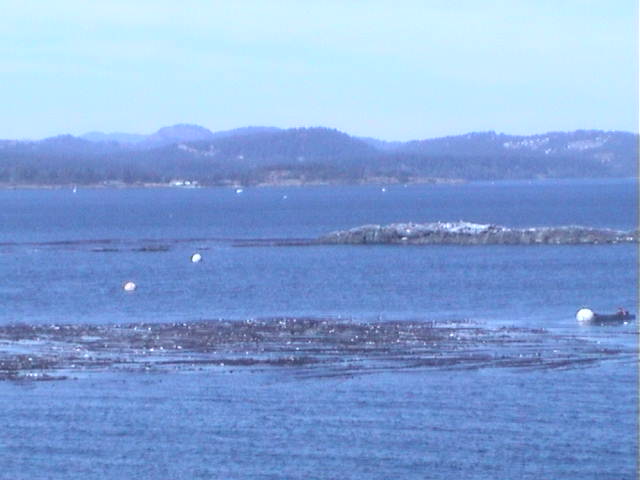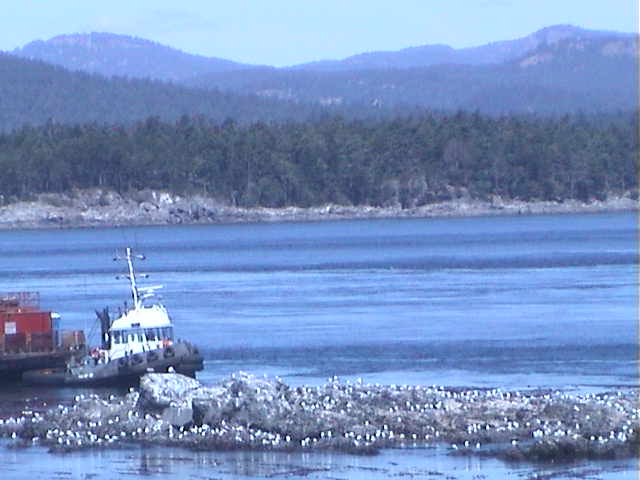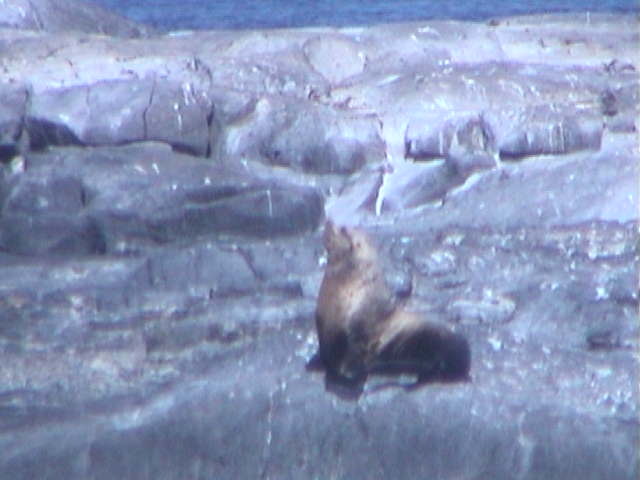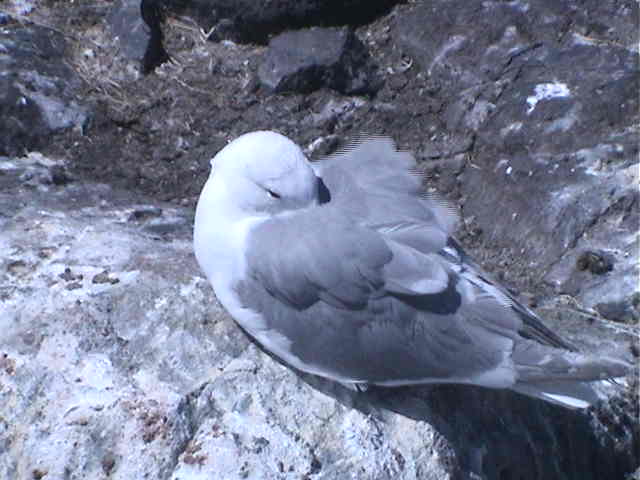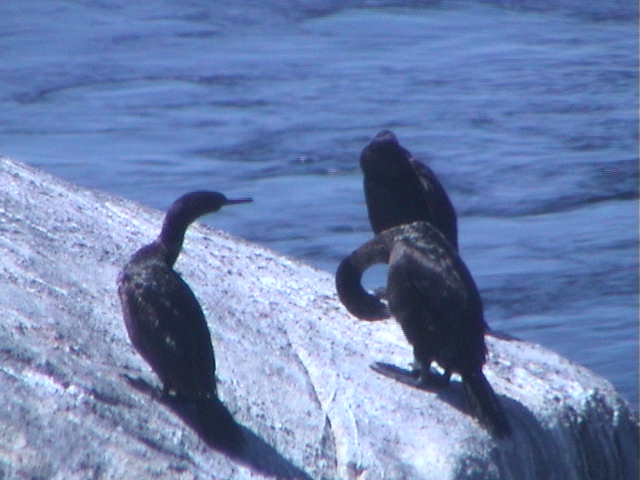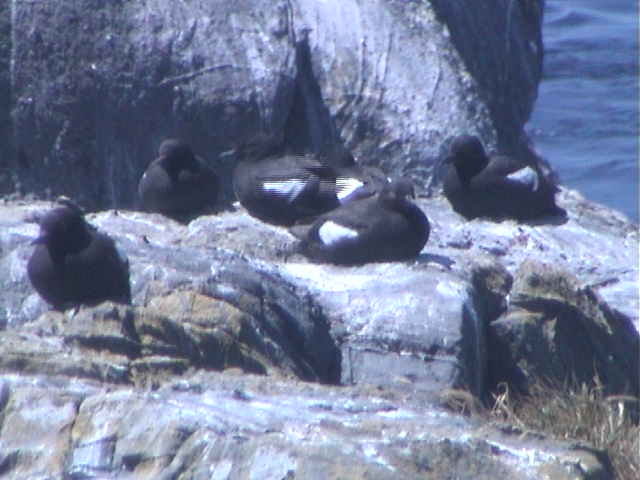This video is a compressed version of the one produced by Brainstorm for the Tidal Current Power Project. It documents the partners and the process along the way in the establishment of the Turbine Project . (released January 19, 2007 to correspond with the visit of Prime Minister Stephen Harper to Lester Pearson College and Race Rocks. )
Tag Archives: tidal energy
Upper Piling Installation for the Tidal Energy Current Project
- Another barge in position to install the top pilingnicode
- Top piling on deck
- The bottom end of the top piling
- The top side of the top piling where the cradle for the turbine will insert
- Whole view of top piling
- Top piling being lifted for installation
- The divers from CanPac spend several dives torquing the bolts .
- …which attach the upper piling to the lower piling.
- Chief Engineer Russ Stothers of Clean Current looks on..
- Dan and his partner make two quick dives to take advantage of the short slack water time.
Images by Gary Bouman, Garry Fletcher and Chris Blondeau
Installation of lower section of the piling for tidal energy project
Integrated Energy Project Update-Record of Events
With the Pearson College – EnCana – Clean Current Tidal Power Demonstration Project at Race Rocks now fully underway, we are seeing a variety of activities in the preparation for the tidal generator and other components of the Integrated Energy System at Race Rocks. Look for the most recent updates at the top of this page.
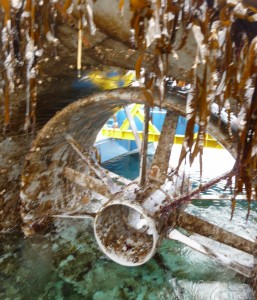 END of Tidal Energy project and removal of Turbine
END of Tidal Energy project and removal of Turbine
In the late summer of 2009, Pearson College installed six new 165 watt solar panels to add to the existing bank of 38 panels on the energy centre.
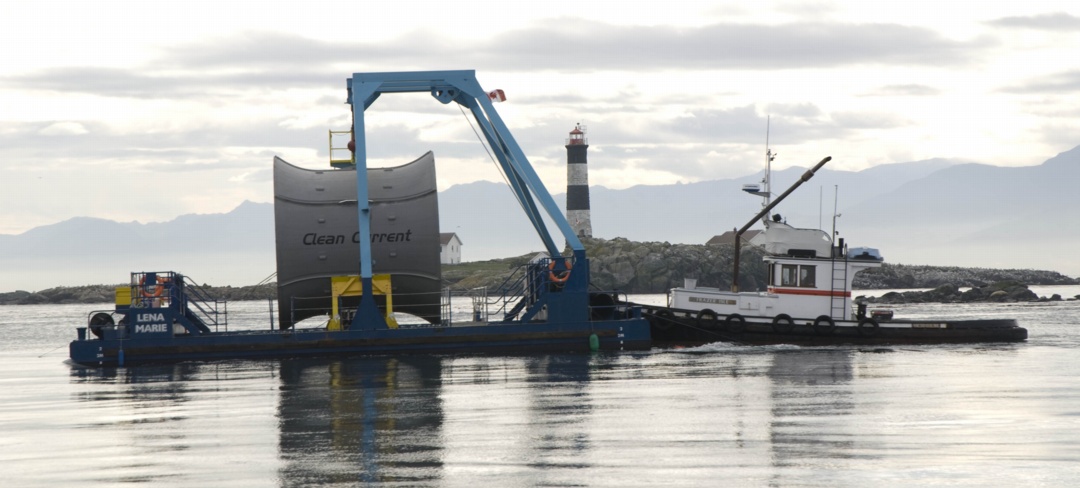 Redeployment of the Tidal Energy Turbine October 2008
Redeployment of the Tidal Energy Turbine October 2008
April, 2007.The tidal energy turbine is raised to change the bearings which had been deteriorating faster than expected.
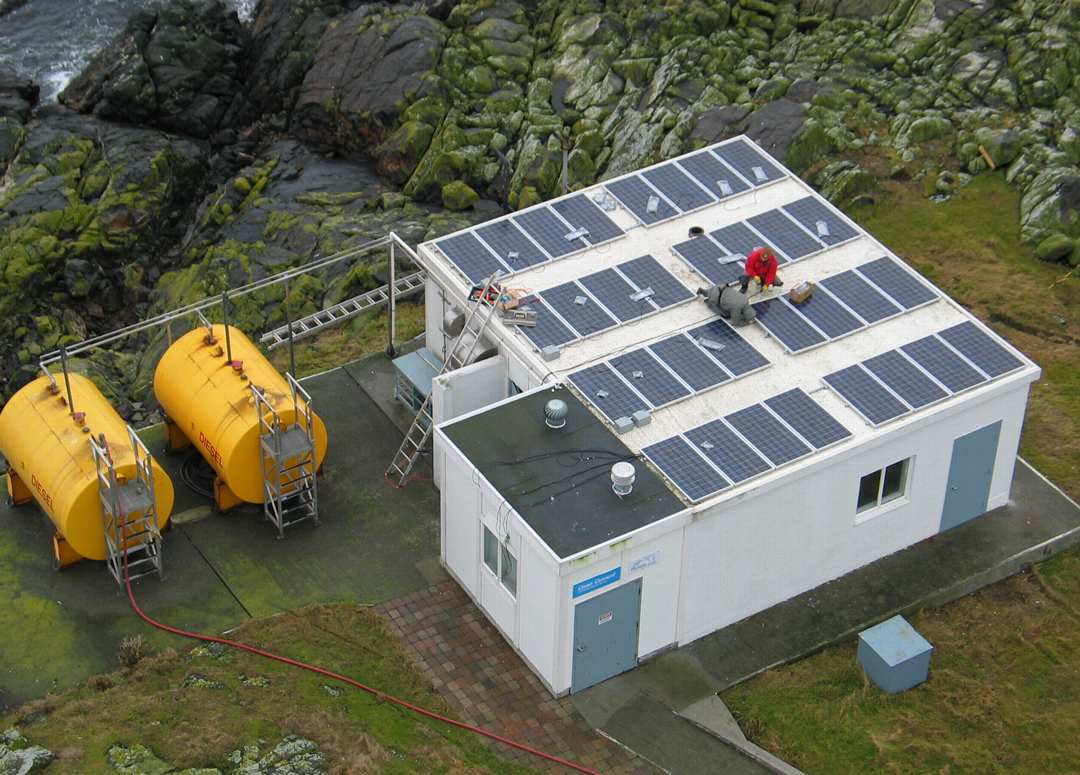 Cementing anchor bolts to the roof January 17, 2007
Cementing anchor bolts to the roof January 17, 2007
Installaton of solar panels January 25,2007
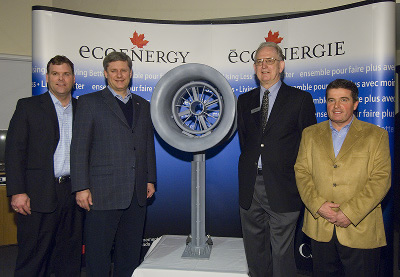 PM Stephen Harper visits Race Rocks for an “ecoenergy announcement” Jan 19, 2007
PM Stephen Harper visits Race Rocks for an “ecoenergy announcement” Jan 19, 2007
Installation of the turbine Sept. 27, 2006
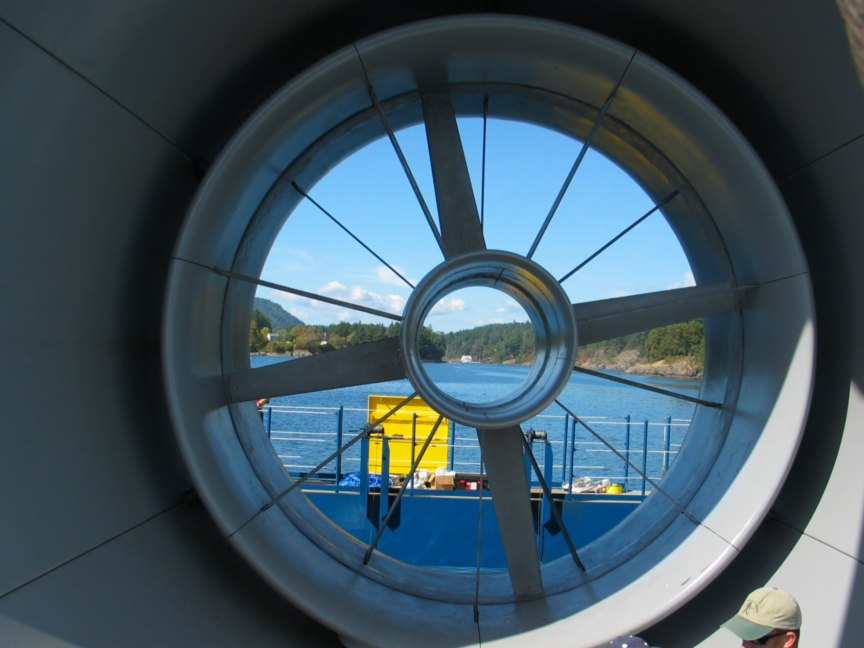 Testing of the Turbine in Pedder Bay
Testing of the Turbine in Pedder Bay
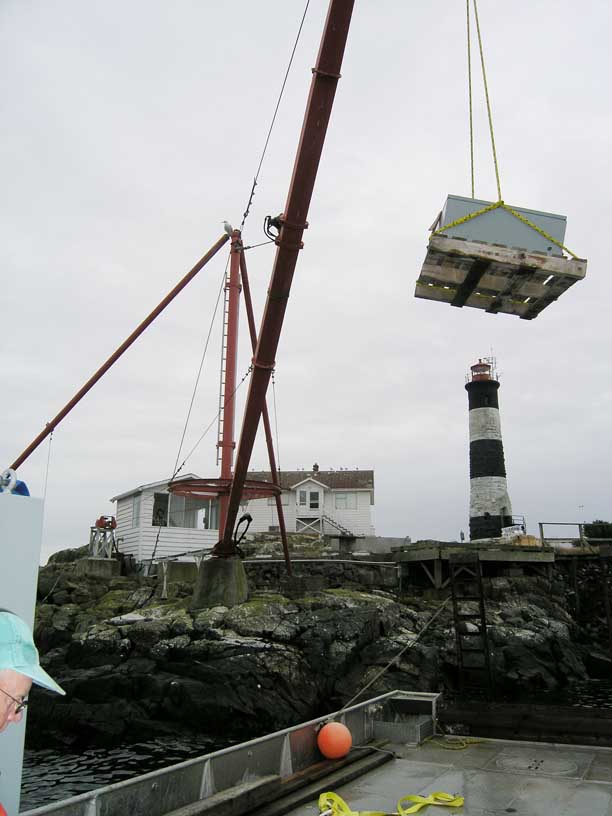 Installation of the turbine control unit
Installation of the turbine control unit
Laying of the cable to shore Aug.20-22, 2006
Installation of upper part of the piling
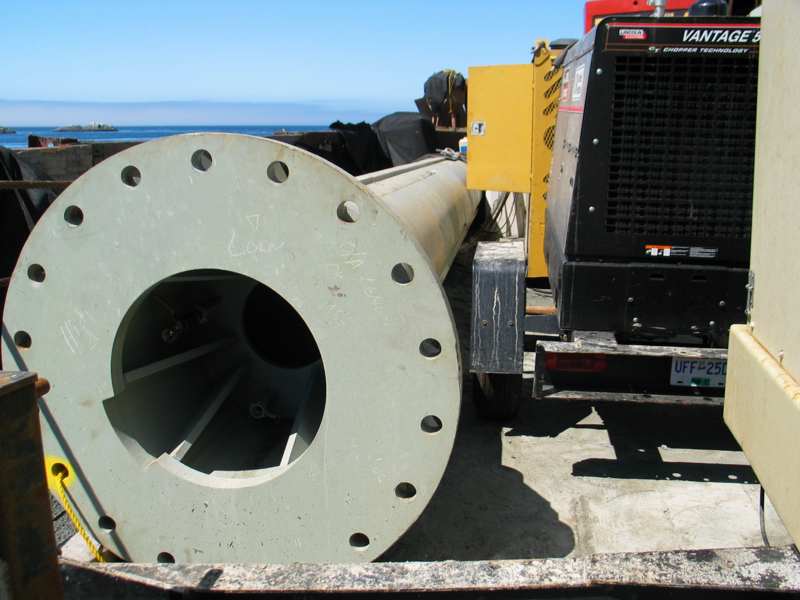 Installation of bottom part of the piling
Installation of bottom part of the piling
Drilling Problems encountered in installation of the tidal current energy Piling
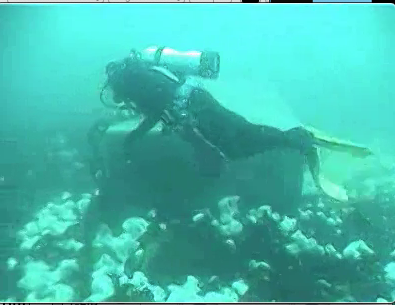 Installation of the Anchors for Drilling for the Tidal Current Energy Project
Installation of the Anchors for Drilling for the Tidal Current Energy Project
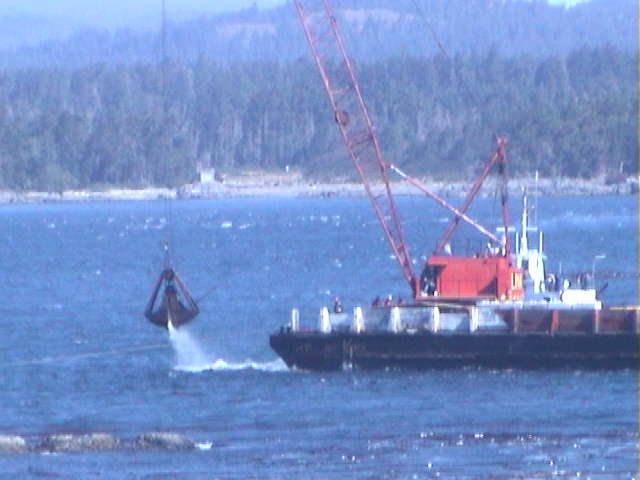 Dredging the overburden for the tidal energy installation.
Dredging the overburden for the tidal energy installation.
Instrument is installed at Race Rocks, Oct.26, 2005
 |
 |
 |
|
| Dredging the overburden | Deployment of Anchors for the Piling July 16, 2006 |
Drilling |
| Underwater Sensors at RR |
| Students of Pearson College help with transferring 96 storage batteries March 10-12, 2006 |
Battery Installation, March 2006 |
Electronic equipment arrives March, 2006 |
| January 2006: preliminary work on piling installation | Preliminary work for Cable laying and Pile Drilling..Nov 2005 | Succession Studies on Different Substrates, summer, 2005 |
| The Race Rocks Weather Instrument is installed at Race Rocks, Oct.26, 2005 |
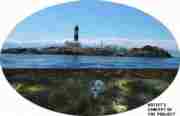 |
Link to the Tidal Energy part of the Integrated Energy Project Index |
Turbine Control Installation for the Tidal Current Energy Project
- The first panel is unloaded from the “Beecher Bay Bee” barge.CAMERA
- from the “Beecher Bay Bee” barge. Mike runs the winch to lift the control panelsCAMERA
- The Control Unit is hoisted onto the dock at Race Rocks
- Images by Gary Fletcher, gary Bouman and Chris Blondeau
- Mike and Carol on the docks
- Virgil explains the operation of the starting motor
Test Installation of Tidal Energy Turbine in Pedder bay
- In the first week of September, the turbine arrived from Vancouver and was moored at Pearson College.
- It was cradled on a barge built specifically as a service vessel.
- The vessel is named the Lena Marie after the wife of Barry Davis, the original designer.
- On Sept 15 , the turbine was taken to the outer part of the bay for its first sea trial.
- The connector which will fit into the top section of the piling.
- Electrical connections for the temporary test.
- As the barge went out of the bay, the floating building of the college is photographed..
- ..through the 1 meter hole in the centre off the turbine
- Positioning the barge
- Preparing to release the transport cradle
- The transport supporting cradle has to be removed from the turbine
- supporting sides of the cradle are removed.
- The turbine is now ready to be lifted from its cradle.
- The turbine is hoisted up out of the cradle
- Tugboat through the turbine
- The first immersion in the water.
- Immersion
- These are clips from a video, taken on the Pedder Bay Trial-immersion day .. They are not linked to larger images.
- .Brian adjusts the connections before submersion.
- Photos by Garry Fletcher
- The turbine is lifted back out of the water after electrical tests were conducted.
Problems in the Installation of the Piling for the Tidal Energy Project
Not every aspect of the tidal Current energy project went perfectly without problems. At one point the project was within hours of being called off. A replacement drill bit had to be flown in and weather conditions threatened to suspend operation. The most difficult stage in the installation was the breaking of the drill casing and drill bit. One morning when attempting to attach the barge, the casing which by this time was sunk in the bedrock, twisted off, trapping the drill bit in the ground.
- The drill bit is removed from the casing filled with rock fragments
- The cutting torch is used to open the casing
The most amazing part of thew process was that whatever the problems, the engineers proved to be very capable in meeting the challenge and coming up with a problem. This was particularly impressive in that it was the first kind of such an exercise and it was in an ecologically sensitive area at a time of year when weather could cause a stop to the process.
Drilling for the piling for the Tidal Energy Project
On July 24, 2006 the drilling took place throughout the day, with ever-increasing wind speed. The following pictures were captured from the remote Camera 5 on Race Rocks.
- Transfer of welder
- Crew on board the barge
- No wind today.
- Lifting drill into position Preparing the drill bit
- tugs standing by
- Dredge bucket
- The dredge bucket on the barge.. note markings are in feet.
- The end to a calm hot day
Dredging the Overburden for the Tidal Energy Installation
On July 17, 2006 dredging of the overburden on the selected site was started for installation of the piling.This operation was the most environmentally invasive of the project, but it was estimated that only about 20 square metres of the bottom were disturbed. Given that this is such a high current area, within a year there were no visible changes to the are around the piling. The following pictures were captured from the
remote Camera 5. by G. Fletcher.
- Removal of the dredge
- Over a meter of overburden had to be displaced in order to clear a site for the dril
- Completion of the operation
- The dredge bucket on the barge.. note markings are in feet.
- Dredge bucket
Installation of the Anchors for the Tidal Current Turbine Project
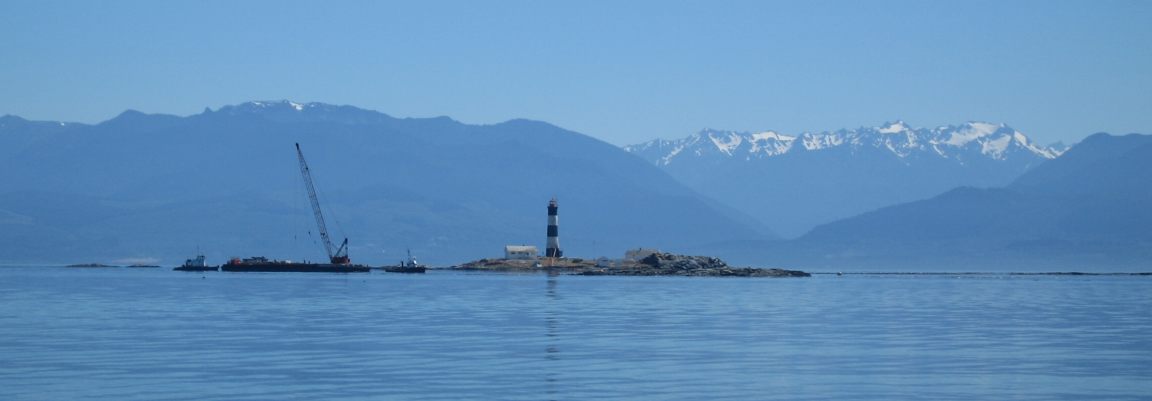
On July 16, 2006 the barge was moved on site for the installation of the piling. The first stage was the deployment of anchors for the positioning of the drilling barge. I captured the following pictures from the remote Camera 5.
- Early Sunday morning they barge leaves Vancouver and arrives to be placed in position to deploy the anchors
- The tide is running at several knots today.
- So stabilization is accomplished by the two tugboats.
- Crew on board the barge
- Concrete block anchors on deck.
- The crane lifts an anchor block and when the barge is positioned at predetermined locations..
- block is lowered to the seabed
- Next a large buoy is raised from the deck –
- swings to the rear of the barge
- and lowers it to the surface.
- detach the crane line from the buoy
- atcher boat is used to
- Several buoys are already in place. Second Nature stands by in the background.
- ccxccc
- Location of three of the Buoys installed on the East sideof the channel
- A large flock of gulls was on the middle island during the operation
- Normally at this time of year there are no sea lions present. This one turned up today.
- The gulls….
- and cormorants …
- and pigeon guillemots are not disturbed on the nesting grounds of Great Race Rocks.
On July 18, 2006 Chris Blondeau and Mike Cameron dived on the west centre anchor blocks and took video of the blocks and chains and some of the effects on surrounding organisms. They also navigated on the same dive to the dredged site as well and we see the excavation and the pile of dredged materials in this video.

